
As awards season kicks into gear this year, once again, blissfully, there is no definitive Best Picture frontrunner. Last year, from the start of awards season right up to the Academy Awards telecast, it was entirely unclear which movie was going to win Best Picture until Warren Beatty and Faye Dunaway announced it was The Shape of Water. This year, that movie could be the heartbreaking romantic musical A Star Is Born; it could be the mind-blowing space exploration epic First Man; it could be the tear-inducing family drama Roma; or it could be the record-breaking superhero blockbuster Black Panther.
Or, quite possibly, it could be none of these films. Which is exciting! And also a relief. Remember when La La Land was the darling of the fall festival circuit? And then the presumptive Best Picture winner? And then an overrated, hacky plea to SAVE JAZZ MUSIC? And then the most batshit Oscar trivia footnote ever thanks to envelopegate? These days, being the “frontrunner” during awards season is less something to be desired, and more a game of 1-2-3-not-it!
Before we look more closely at the year's lineup of movies with the best shot — or even just a halfway decent shot — at making it to the Oscars, it's worth noting that nowhere is the awards season conversation more brutally wide open than Best Actress. No fewer than 16 women could potentially score a nomination for the category, including previous Oscar winners Nicole Kidman, Viola Davis, and Julia Roberts; previous nominees Glenn Close, Keira Knightley, and Melissa McCarthy; potential first-time nominees Lady Gaga, Olivia Colman, and Emily Blunt; and a woman with zero previous acting experience, Roma's Yalitza Aparicio.
When considering that several of these women also headline movies with real Best Picture buzz behind them — a criminally rare occurrence for this category — it becomes fabulously clear that 2018 was a year of relative abundance for women in film. In a time of such continuing frustration and distress within the industry (and without!), that is a development worth celebrating.
MOVIES THAT HAVE OPENED
These films have played in theaters, and their Oscar chances are still bright.
Black Panther (Feb. 16)
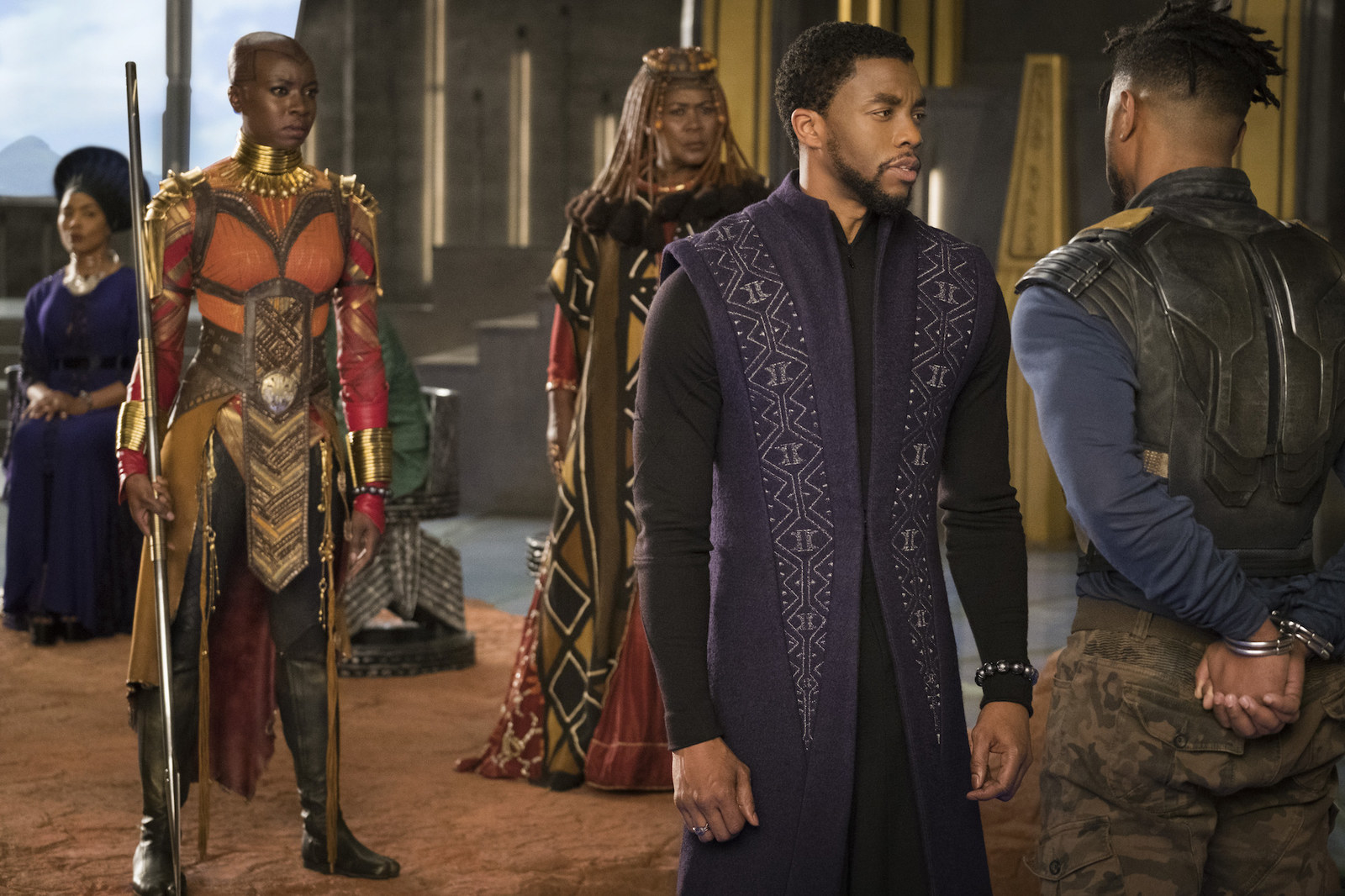
Ever since 2008's The Dark Knight came thisclose to a Best Picture nomination, no superhero movie has had a better shot at becoming the first ever to earn a nod for Oscar's top prize than Black Panther. The Marvel Studios juggernaut destroyed box office records and long-held Hollywood prejudices in equal measure, but what matters for awards season is that it did so with enormous style and artistry. The limitation with superhero movies in the past has been that while they could comfortably earn nominations for their visual effects and sound, they rarely broke ground in the below-the-line craft categories like costume design, production design, and cinematography — demonstrating broad-based support among the Academy’s many divisions that is often key for a Best Picture nomination. Disney, however, is planning a full awards push for Black Panther that will include Rachel Morrison's vivid cinematography, Hannah Beachler's lush production design, and Ruth E. Carter's stunning costumes — not to mention Michael B. Jordan's simmering supporting performance as the complicated villain Erik Killmonger.
When the Academy first announced its controversial plans for a new category for “popular” movies, Black Panther — the top-grossing film of the year domestically — became the most obvious contender. But the film has such a great shot at a Best Picture nomination that some worried that Academy voters would relegate it to the lesser “popular” category if given the option. With the Academy's plans for the new category now on pause, the path is clear for Black Panther to continue its history-making run all the way to the Dolby Theatre. —Adam B. Vary
A Quiet Place (April 6)

The Academy and horror have a historically strained relationship, to put it mildly: The standouts of the genre almost always go unrecognized — The Silence of the Lambs and The Exorcist are among the rare exceptions — and horror filmmakers have never seemed particularly invested in Academy approval, anyway. But horror is having a moment, and while these films have long had more on their mind than jump scares and gore, it feels like the mainstream establishment is finally taking notice. The success of Get Out at last year’s Oscars — the darkly funny satire of race relations in the US was nominated for four awards, including Best Picture, and earned Jordan Peele a trophy for his original screenplay — felt like long overdue recognition of what horror can be. A Quiet Place is not Get Out, but it’s another massively popular horror film that earned praise for its blend of high tension, strong performances, and social commentary. (We can debate whether it’s simply about the importance of familial bonds or has a stronger pro-life agenda elsewhere.) It’s not unthinkable that A Quiet Place could find its way into the race — not just in technical categories like Best Sound Editing and Sound Mixing, but perhaps also for Bryan Woods, Scott Beck, and John Krasinski’s dialogue-light screenplay or Emily Blunt’s gripping performance, which includes a very memorable bathtub birth scene. —Louis Peitzman
The Rider (April 13)
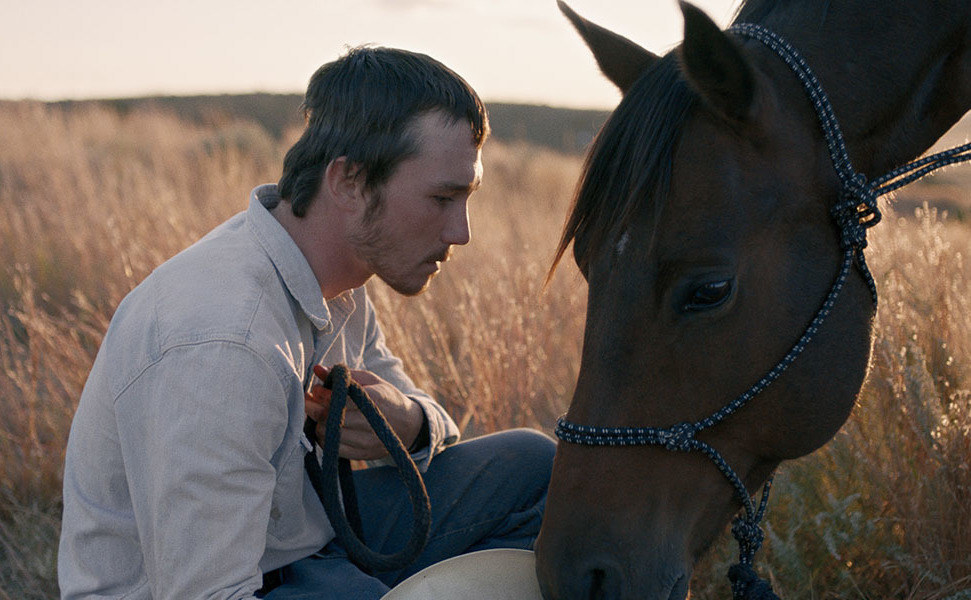
This delicate indie film slipped by this spring, but its impact has lingered throughout the year. It's the lightly fictionalized story of horse trainer and rodeo rider Brady Jandreau, who suffered a devastating skull fracture in the ring that makes just the act of getting back up on a horse a life-or-death risk. But Jandreau did, to tell a version of that same story for writer-director Chloé Zhao. The visual grace and emotional power Zhao brings to Jandreau's story already earned The Rider four Independent Spirit Award nominations — last year, thanks to Indie Spirit rules that allow for recognition based only on film festival screenings. The film's subsequent theatrical release made just $2.4 million at the domestic box office, but Zhao's potent filmmaking still caught the attention of Marvel Studios, which reportedly hired Zhao to direct its (as yet unannounced) feature The Eternals. The Academy shouldn't sleep on this movie, either. —ABV
First Reformed (May 18)
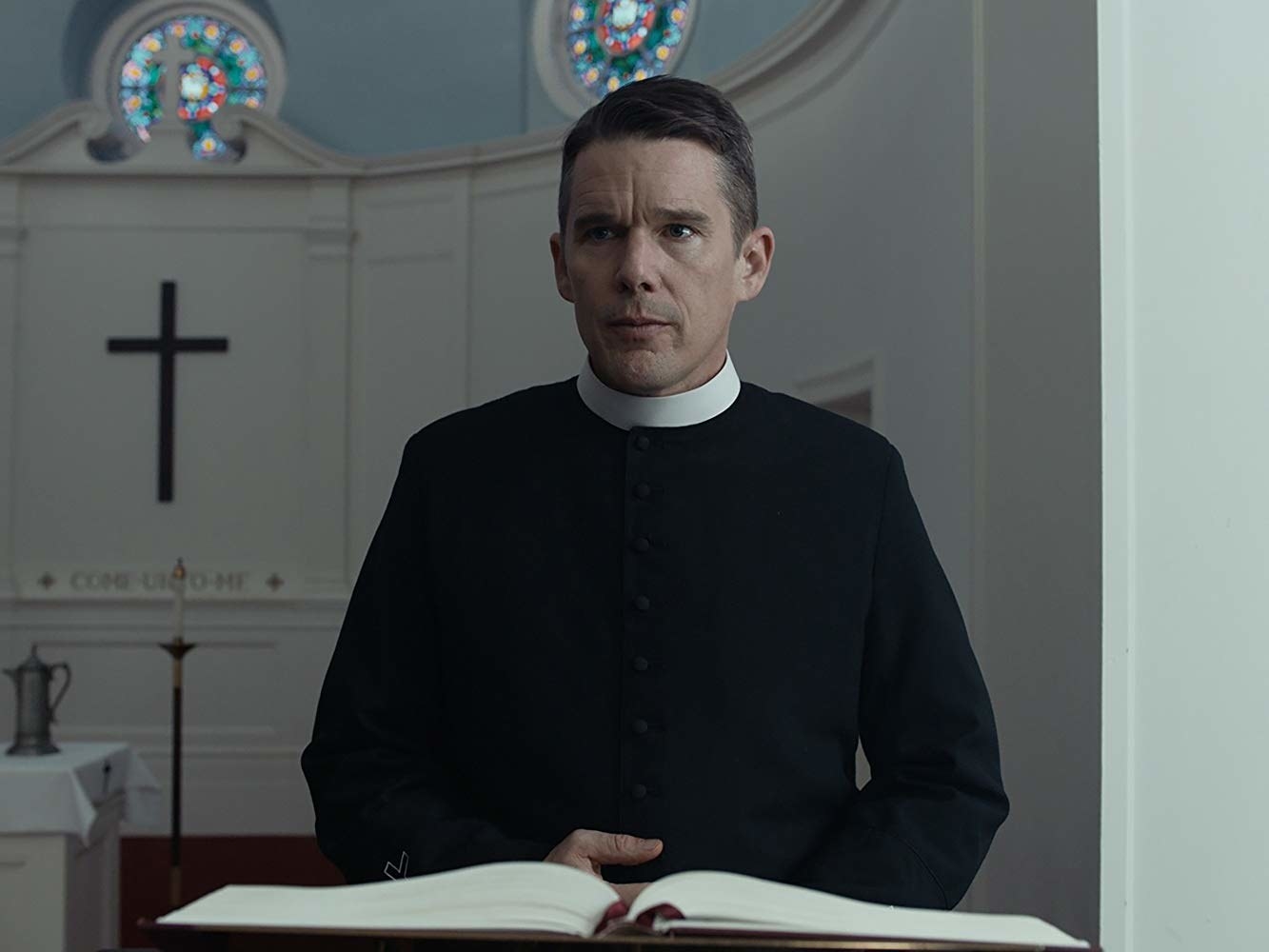
It's rather rare for a male actor to get a Best Actor nomination for a movie that opened in the first half of the year. Since 2008, in fact, it's only happened three times: Daniel Kaluuya for 2017's Get Out, Jeremy Renner for 2009's The Hurt Locker, and Richard Jenkins for 2008's The Visitor. Ethan Hawke may very well join that rarefied company for his measured and melancholic performance in First Reformed as a reverend facing a crisis of faith that becomes quite literally existential. Writer-director Paul Schrader, meanwhile, has written some of the most powerful films of the last 50 years, including Taxi Driver, American Gigolo, Raging Bull, and The Last Temptation of Christ. But he's never earned a single Oscar nomination — which could finally change this year. (Spoiler alert: This will be a recurring theme of this preview!) —ABV
Hereditary (June 8)
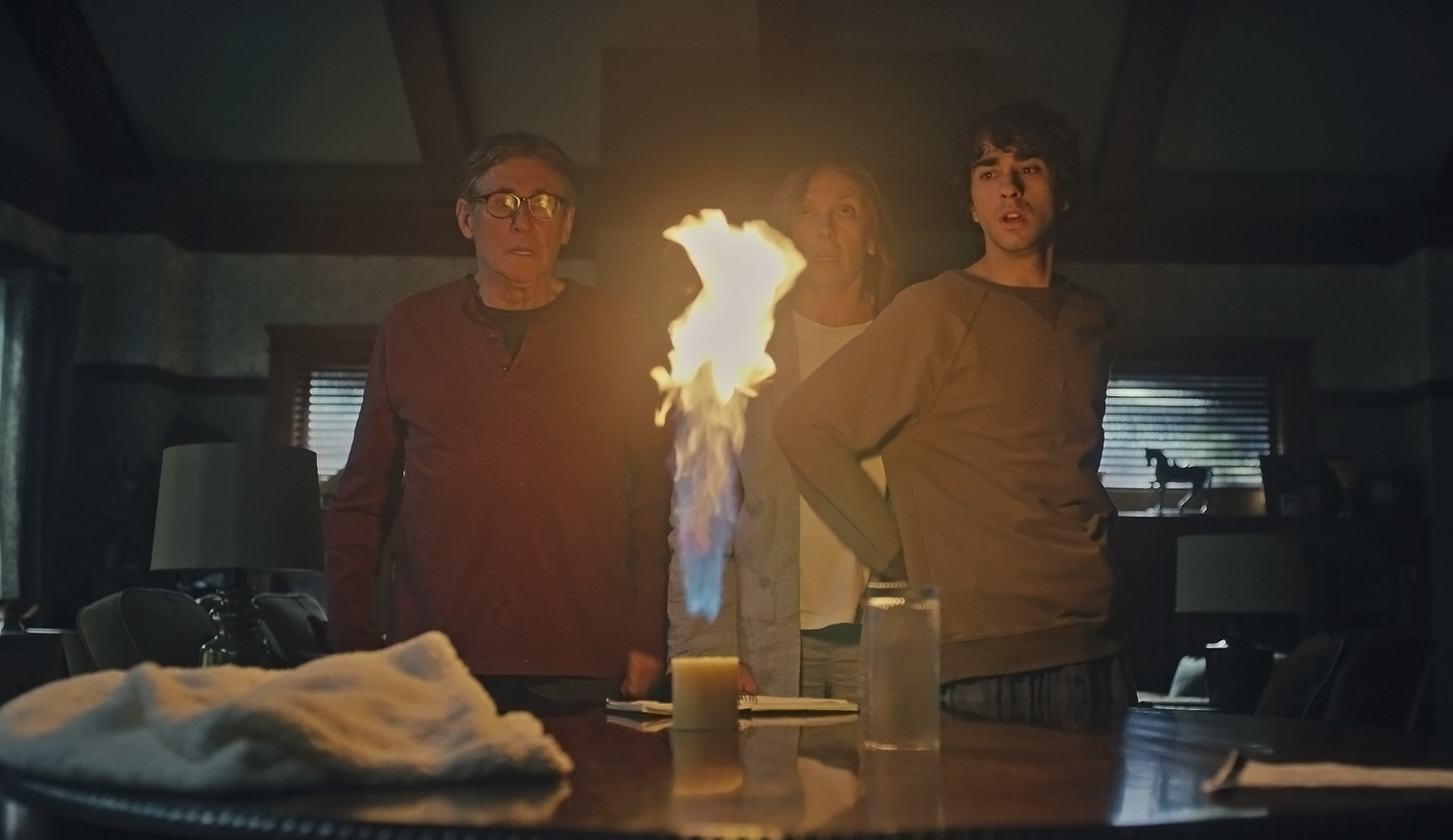
As with A Quiet Place, Hereditary has the Academy’s usual distaste for horror working against it. And Hereditary is, well, a lot more fucked up than A Quiet Place: This is a bleak, nasty movie that likely turned off a huge chunk of audience members with its first brutal twist. That said, Hereditary is also a very effective film about grief, grounded by a stunning and visceral performance from Toni Collette as Annie, a mother who is not coping well with her sudden loss. Collette has been Oscar-nominated before — and for another horror film largely about grief, 1999’s The Sixth Sense. If she is recognized again (and she should be for that seance scene alone), perhaps that means she’s found a niche subgenre that plays to her strengths. (I would swear allegiance to Paimon to see Alex Wolff get an acting nod as well, but I wouldn’t bet my head on that happening.) —LP
BlacKkKlansman (Aug. 10)
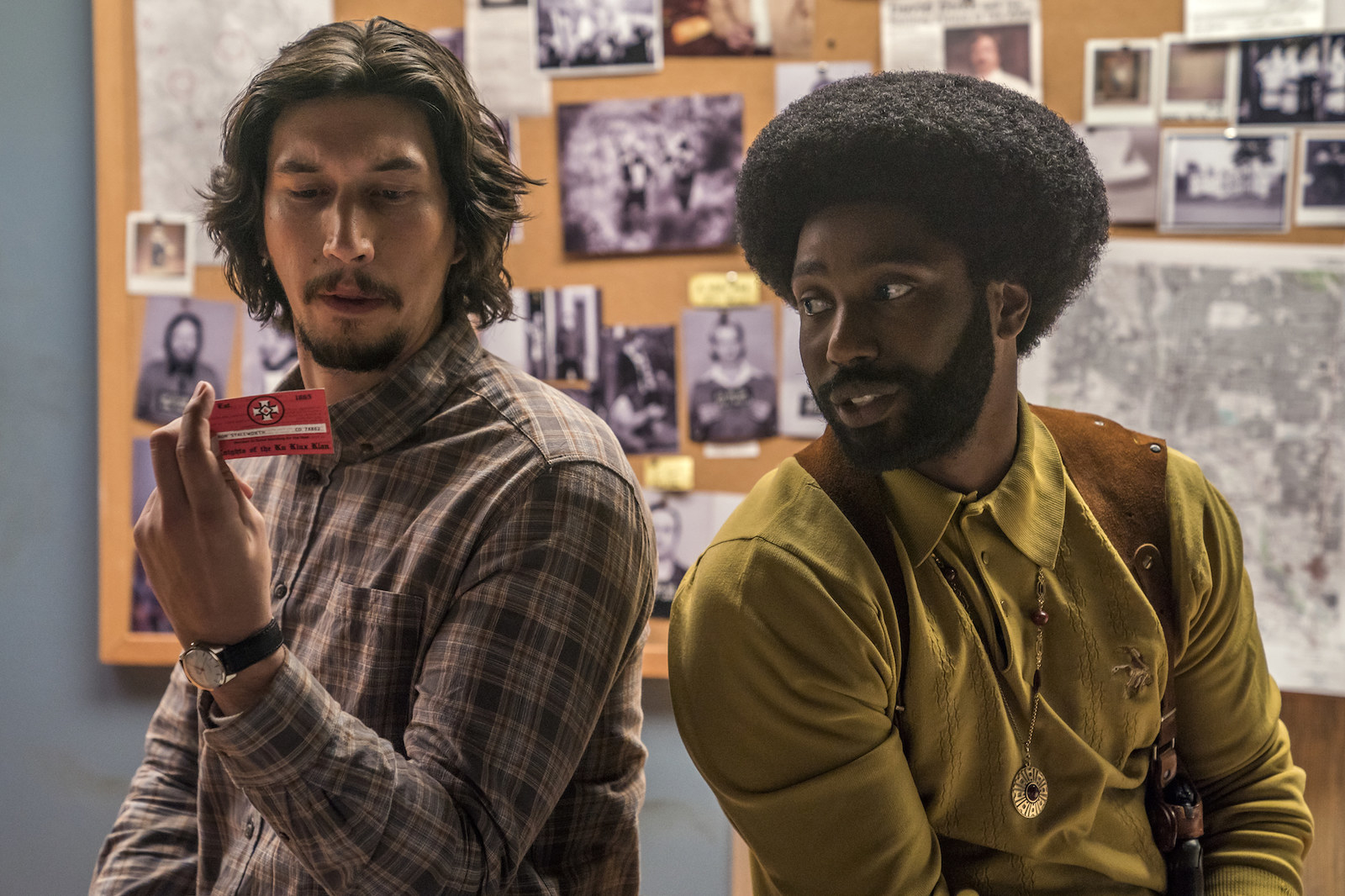
Before BlacKkKlansman won the Grand Prize at the 2018 Cannes Film Festival (essentially second place), the film had already earned director Spike Lee his best reviews in over a decade. It's based on the extraordinary true story of Ron Stallworth (John David Washington), a black police detective in Colorado Springs who, in the late 1970s, talked his way into infiltrating the local chapter of the Ku Klux Klan, with the help of his Jewish partner (played by Adam Driver). Lee's film is strongest when he's exploring how the violence of white supremacy radiates far beyond the KKK, but even he seems unnerved that we still have to deal with these oafish bigots in 2018. The urgency of the film, meanwhile, could earn Lee the first Best Picture nomination of his iconoclastic career — another surprising fact about 2018! —ABV
Crazy Rich Asians (Aug. 15)
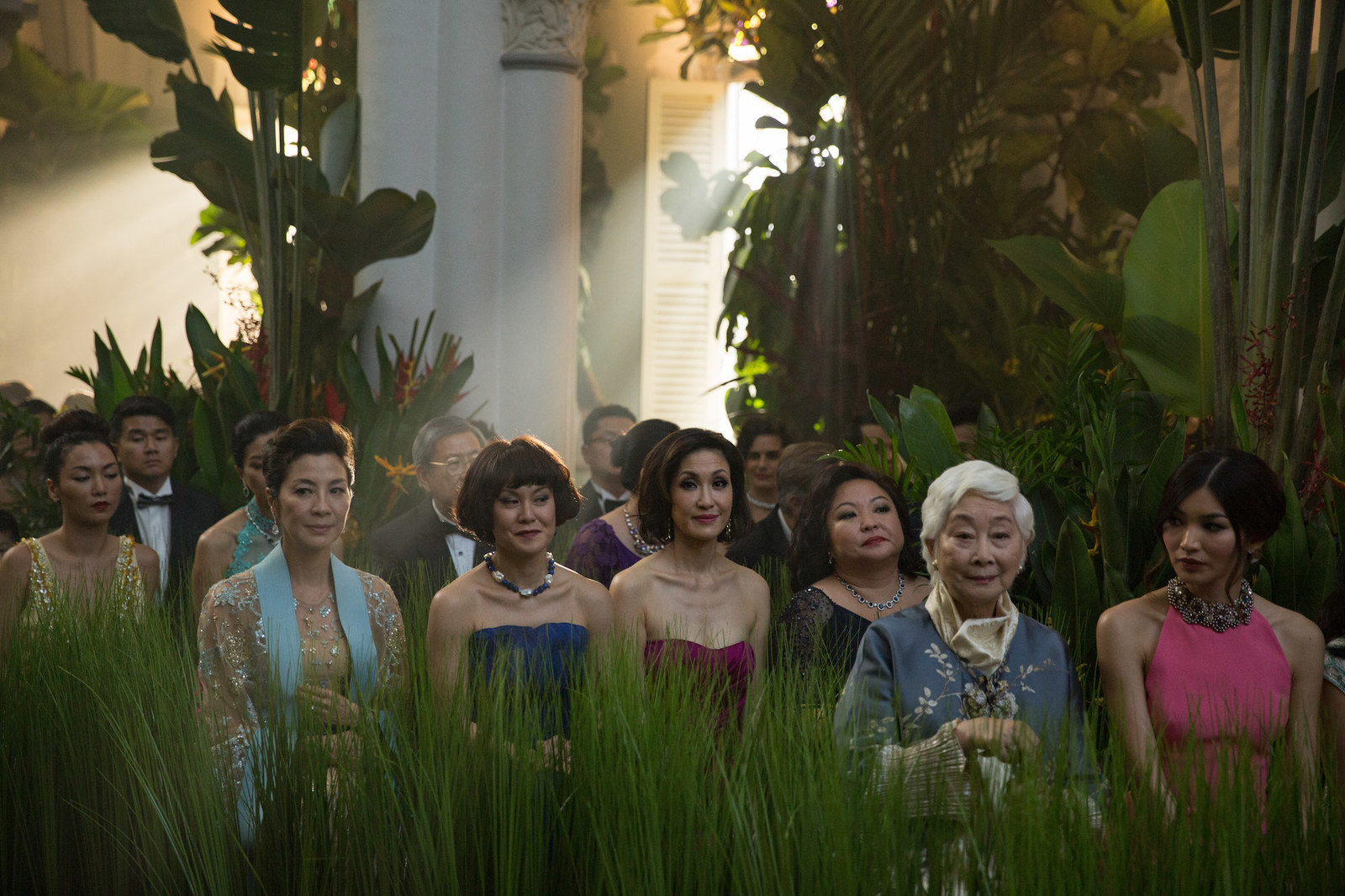
When the Academy first announced it was planning a new category for “popular” film, Crazy Rich Asians seemed like the perfect litmus test for it: While not a mega-blockbuster, this film has single-handedly resurrected the romantic comedy as a vehicle for the kind of opulent, delightful, and unabashedly emotional filmmaking that defined “popular” cinema for much of the 20th century. Unlike Black Panther, alas, there was never much of a chance that Crazy Rich Asians was going to earn a nomination for Best Picture — though the wedding sequence alone could easily win the film nods for its costumes and production design. One thing is clear: Michelle Yeoh's careful, emotionally nuanced performance as family matriarch Eleanor Young should put her at the top of everyone's lists for Best Supporting Actress. —ABV
The Wife (Aug. 17)
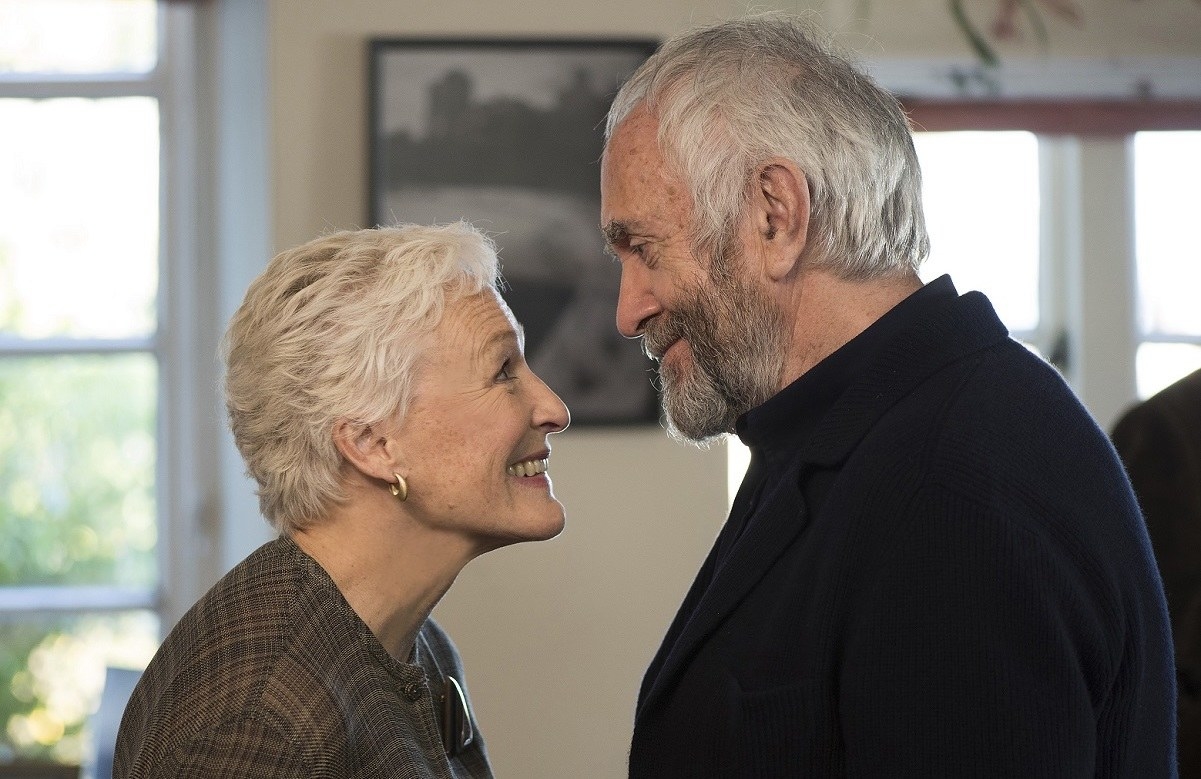
In the 1980s, Glenn Close was nominated for an Oscar five times, making her almost as ubiquitous a presence at the Academy Awards as Meryl Streep. Since that decade, Close has won two Tony Awards and three Emmy Awards, but she's only been nominated for an Oscar one other time, for 2011's Albert Nobbs. Any list of people overdue for an Oscar should have Close near (or at) the top, which is why many Oscar pundits have pegged Close as the frontrunner to win this year for The Wife. She plays Joan Castleman, who, as the title suggests, has spent her life in permanent second position to her husband, Joe (Jonathan Pryce), a literary titan and serial adulterer whose ego is set aflame when he wins the Nobel Prize for literature. As they move through all the official functions leading up to the big prize, Joan is forced to confront how she's sublimated her own talents to let his star shine. Close brings decades of acting experience to Joan, layering in all the conflicting emotions and smoldering self-denial Joan has weathered at Joe's side. It is one of the best roles and strongest performances of Close's career, and could scarcely be more relevant in this time of reckoning for the wreckage of women's lives at the altar of men's reputations. —ABV
Colette (Sept. 21)
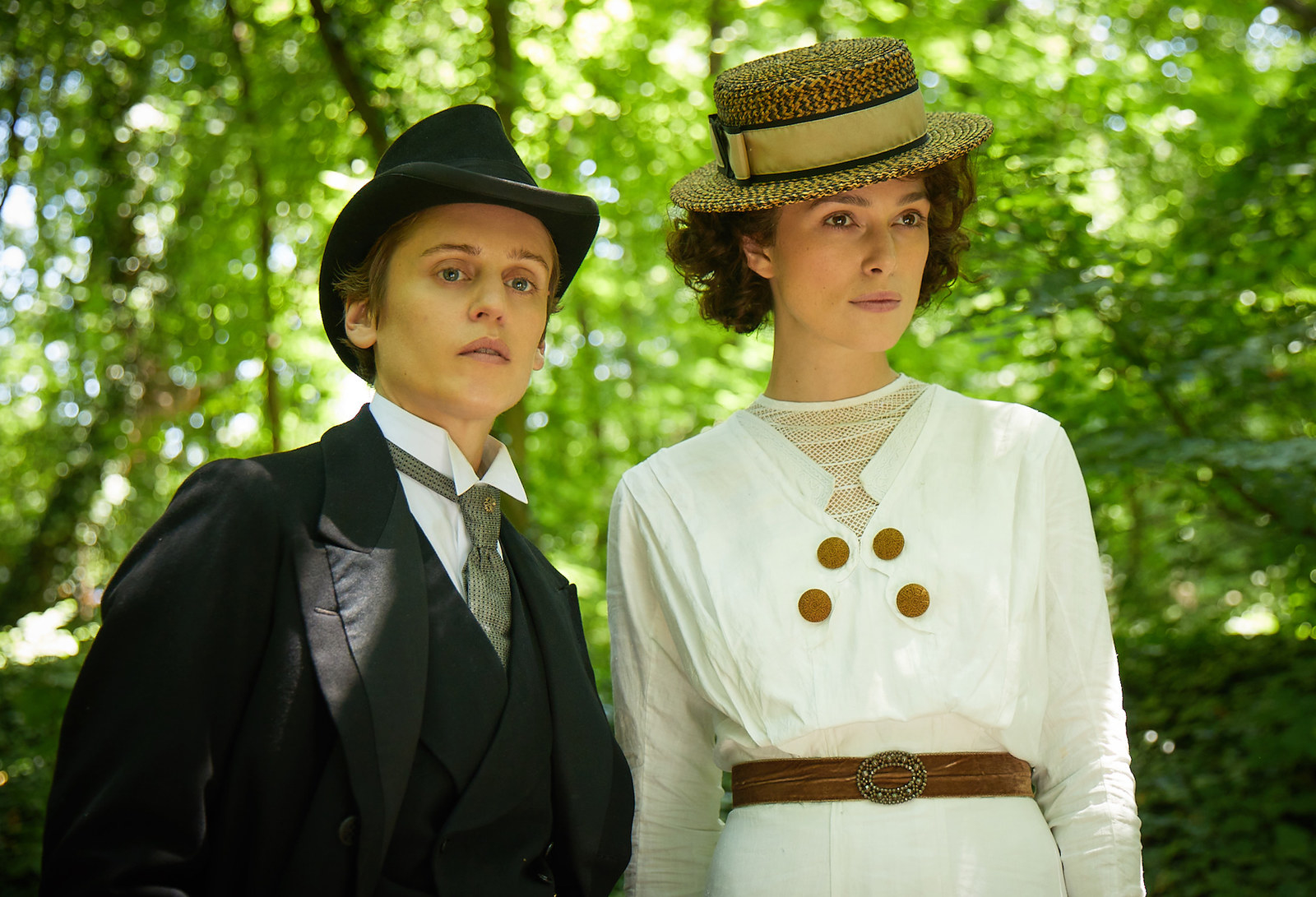
Almost in counterpoint to The Wife, Colette depicts the life of a budding writer who escaped her marriage to an author and philandering narcissist, and went on to become no less than a titan of 20th-century French literature — not to mention a queer icon decades ahead of her time. Also like Close, Keira Knightley hasn't had a role this good in years, and she clearly relishes every second of Colette's journey from a naive girl from the French countryside to a self-possessed cosmopolitan woman keen to explore her unconventional sexuality. Along with Colette's gorgeous, gender-bending costumes, Dominic West makes a strong impression as Colette's husband, Willy — he somehow makes the man's boorish vanity compelling, which is an increasingly hard thing to do! —ABV
MOVIES THAT HAVE SCREENED AT FESTIVALS
These films haven’t opened yet, but they have earned awards buzz after playing publicly at major film festivals in Venice, Telluride, and Toronto.
The Old Man & the Gun (Sept. 28)

He didn't shut the door entirely, but over the summer, Robert Redford announced that The Old Man & the Gun will be his last movie as an actor. And not only that, but that the movie itself — about a lifelong bank robber and thrill-seeker named Forrest Tucker — inspired him to make the decision.
If this is indeed the end for Redford — who is, after all, 82 — it's the perfect way for him to cap off his acting legacy. As Forrest, Redford charms and winks and robs and infuriates the police, who finally figure out they should go after him and the “Over-the-Hill Gang” (he leads a team with Danny Glover and Tom Waits). Redford clearly has a blast here, which is not always true of his performances. (Let's face it, he can be wooden sometimes!) He's a strong contender to be nominated for Best Actor, and if Academy voters feel sentimental, he could also win.
In a weaker year, I could see writer-director David Lowery nominated for Best Adapted Screenplay (the movie was based on an article from the New Yorker about the real Forrest Tucker), but there's a lot of competition in that category this year. The supporting performances, particularly Sissy Spacek as Forrest's girlfriend, and Casey Affleck as the burned-out detective who puts the clues together — are outstanding. And also fun, which is not an attribute I generally ascribe to Affleck. Spacek is a strong candidate for Best Supporting Actress. Affleck is, too, if voters can look past his #MeToo baggage, which prevented him from presenting at the Oscars last year. This movie's biggest stumbling block for Oscar nominations is how entertaining it is. That feels wrong, but it's true! —Kate Aurthur
A Star Is Born (Oct. 5)
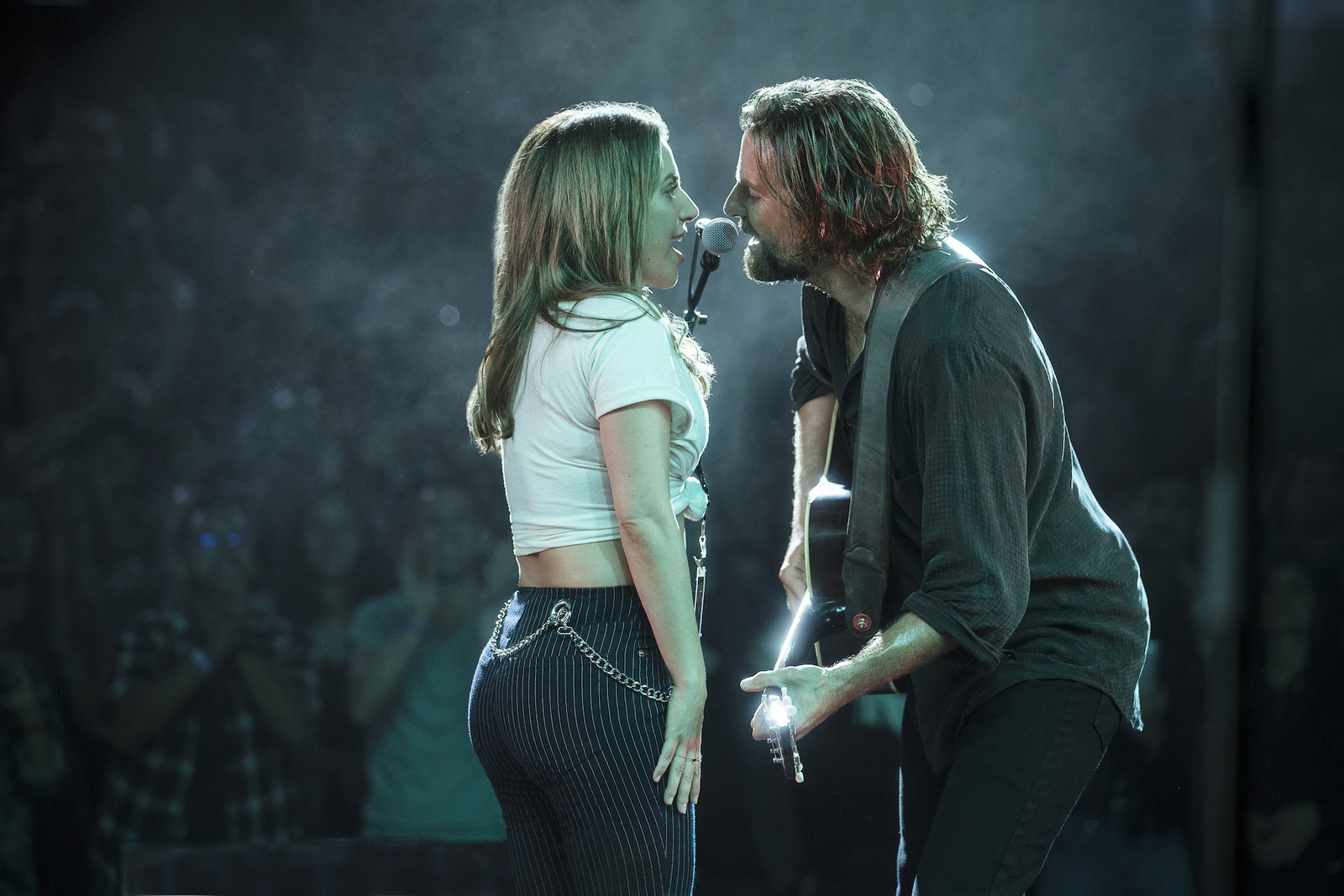
There are those who insist that A Star Is Born can’t be anywhere near as good the hype would have you believe, but that’s just because they haven’t seen it yet. This movie is the real deal — yes, even though it’s helmed by an actor turned first-time director and costars a pop star with limited acting credits. Any doubts you might have melt away the moment Bradley Cooper’s Jackson Maine pulls Lady Gaga’s Ally onto the stage in a scene that’s nothing short of electric. That performance of “Shallow” — complete with Gaga’s holy-shit vocal riff — is actual movie magic. What’s nearly as impressive is how well Gaga does in the quieter moments throughout the film: She’s as convincing playing an insecure, undiscovered talent as she is playing a pop diva. Cooper deserves credit for his direction, and also for being an exceptional scene partner — their tragic romance offers a sobering counterpoint to Ally’s ascent to superstardom. And the supporting cast is equally laudable: There’s a moment between Jack and his brother (Sam Elliott) that I can’t think about without crying, and it’s tough to imagine the Academy not honoring Elliott for that scene alone. But frankly, it’s tough to imagine A Star Is Born not leading the nominations next year — it could even pick up the lion’s share of trophies. Yes, it’s early, but my god, this movie. —LP
22 July (Oct. 10)

Just the logline for this movie inspires dread: Writer-director Paul Greengrass re-creates the 2011 terrorist attack in Norway by right-wing extremist Anders Behring Breivik, who bombed a government building in Oslo, killing eight, and then traveled to the campground on the nearby island of Utøya with a rifle, and massacred 69 people there, most of them teenagers. When he's not making Bourne movies, Greengrass has perfected reproducing the experience of deeply traumatic historical events (2002's Bloody Sunday, 2006's United 93, 2013's Captain Phillips), and that skill is on ready display here. Unlike his earlier films, however, Greengrass spends the majority of 22 July depicting the messy aftermath of the attack, and two performances from Norwegian actors emerge that could seize the attention of Oscars voters. As Breivik, Anders Danielsen Lie makes the man's isolation and self-importance chillingly real and relatable. And as Viljar, an idealistic teenager who barely survived Breivik's attack on Utøya, Jonas Strand Gravli is at once heartbreaking and galvanizing, capturing how Viljar struggled to persevere in spite of the relentless pain Breivik caused him and his family.
Getting Academy voters to watch a film this harrowing isn't even this movie's biggest hurdle this awards season. That would be the company behind it: Netflix. The streaming giant is making its biggest push yet this awards season, and the quality of the work in 22 July is undeniable. Whether the Academy will honor a movie that the vast majority of people will see at home, however, remains to be seen. —ABV
Beautiful Boy (Oct. 12)
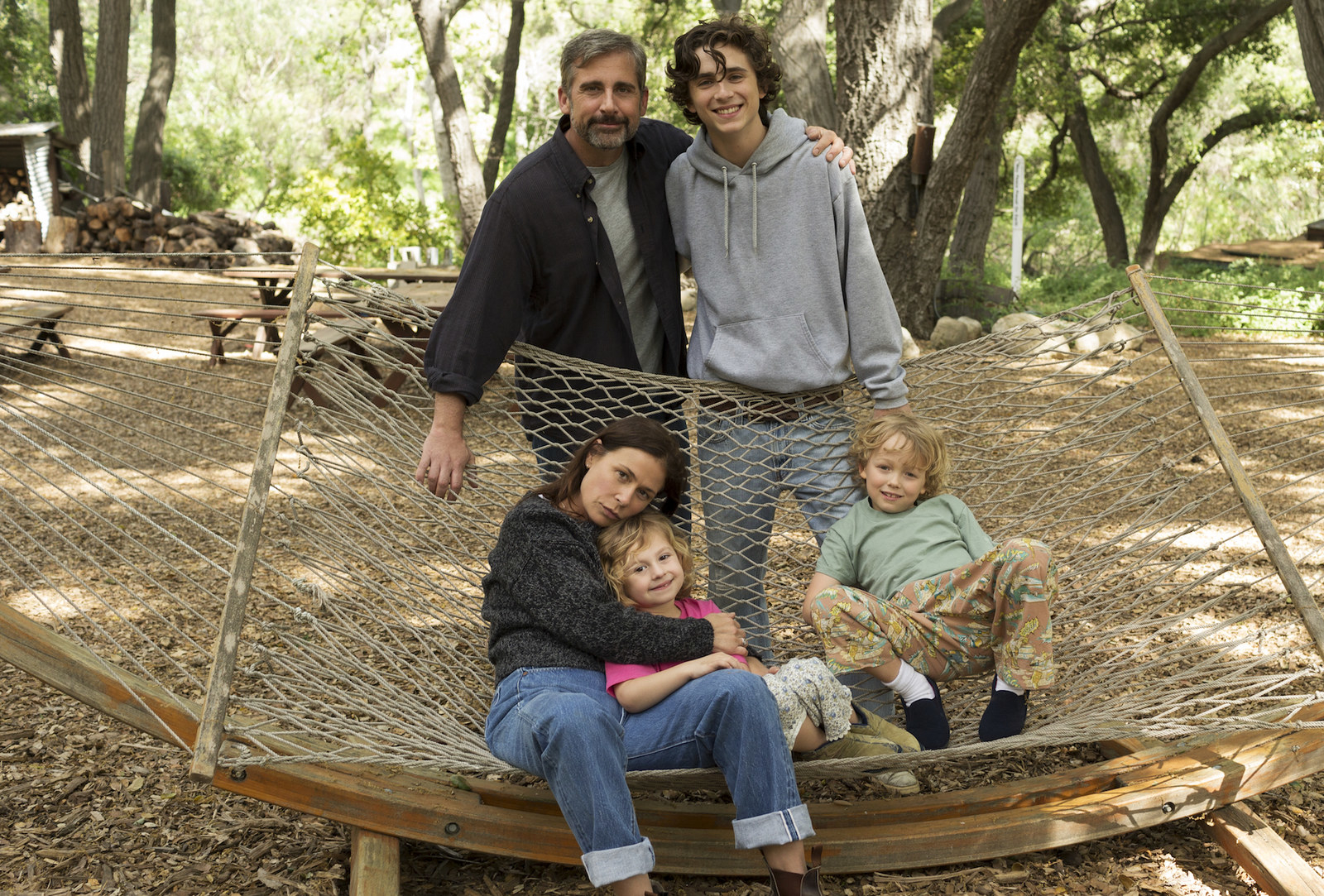
Addiction narratives are hard to pull off, but Beautiful Boy largely manages to keep the inherently repetitive cycle of recovery and relapse feeling fresh, thanks in part to its nonlinear plotting and director Felix Van Groeningen’s stylistic flourishes. But the real strength of the film — and the reason it’s in the awards conversation — is the performances. Timothée Chalamet, who earned an Oscar nomination (and should have won) for last year’s Call Me by Your Name, continues to display impressive range as Nic Sheff, the troubled young man with a drug addiction at the film’s center. Over the course of Beautiful Boy, Nic uses crystal meth, lies effortlessly, hits rock bottom, gets sober, and hits rock bottom again — and Chalamet makes it all feel honest and emotionally resonant in a way that outshines the material. Steve Carell will earn accolades for his performance as Nic’s father, David, but personally I was far more impressed by Maura Tierney as David’s wife, Karen. The scene where she desperately chases after Nic in her car is one of the film’s high points. Beautiful Boy as a whole may feel too afterschool-special to some, although it’s not as though the Academy has ever shied away from sentimentality. At the very least, a pair of acting nominations for Chalamet and Carell seems likely. —LP
First Man (Oct. 12)

If there is any movie this year that feels Destined For The Oscars, it's this one. La La Land's director Damien Chazelle and star Ryan Gosling reunite to portray how Neil Armstrong became the first human ever to step on the moon, with Claire Foy, fresh off her Emmy win for The Crown, playing Armstrong's wife, Janet. Chazelle left the fizzy artifice and nostalgia of La La Land far behind for this movie, aiming instead for a raw and unsentimental portrait of how it really felt to be strapped into a cramped and clanging metal capsule atop a gargantuan rocket aimed at outer space. Which is to say, this film is all but guaranteed nominations for its sound, visual effects, editing, and cinematography. As Armstrong, Gosling is understated even for him, suggesting the man needed his famously taciturn demeanor to weather the unimaginable odds he was facing for success. Chazelle makes those odds viscerally real a few times over — Armstrong's first foray into space, the Gemini 8 mission in 1966, goes so wrong that even though I knew Armstrong survived, I don't think I breathed once during the entire sequence.
Chazelle is so laser-focused on Armstrong's experience that, like Armstrong, he seems allergic to the wide-eyed wonder baked into just about every other film about space exploration — like, to pluck just one example at random, Chazelle’s decision to skip the moment when Armstrong planted the American flag on the moon. That perfectly fine creative choice ended up landing Chazelle, Gosling, and First Man in the middle of one of the silliest awards season controversies in recent memory, after Gosling called the moon landing “a human achievement” when asked about the absence of a flag-planting scene. People who hadn't seen the movie took this to mean First Man was somehow anti-American — nevermind that the flag is visible in multiple shots on the moon, let alone billowing outside the Armstrongs’ house. The moon sequence, shot on IMAX cameras, features the most transportive and stirring filmmaking of Chazelle's (quite young) career, and should blow away any lingering doubts Academy voters might have once they, you know, actually see the movie. —ABV
The Hate U Give (Oct. 19)
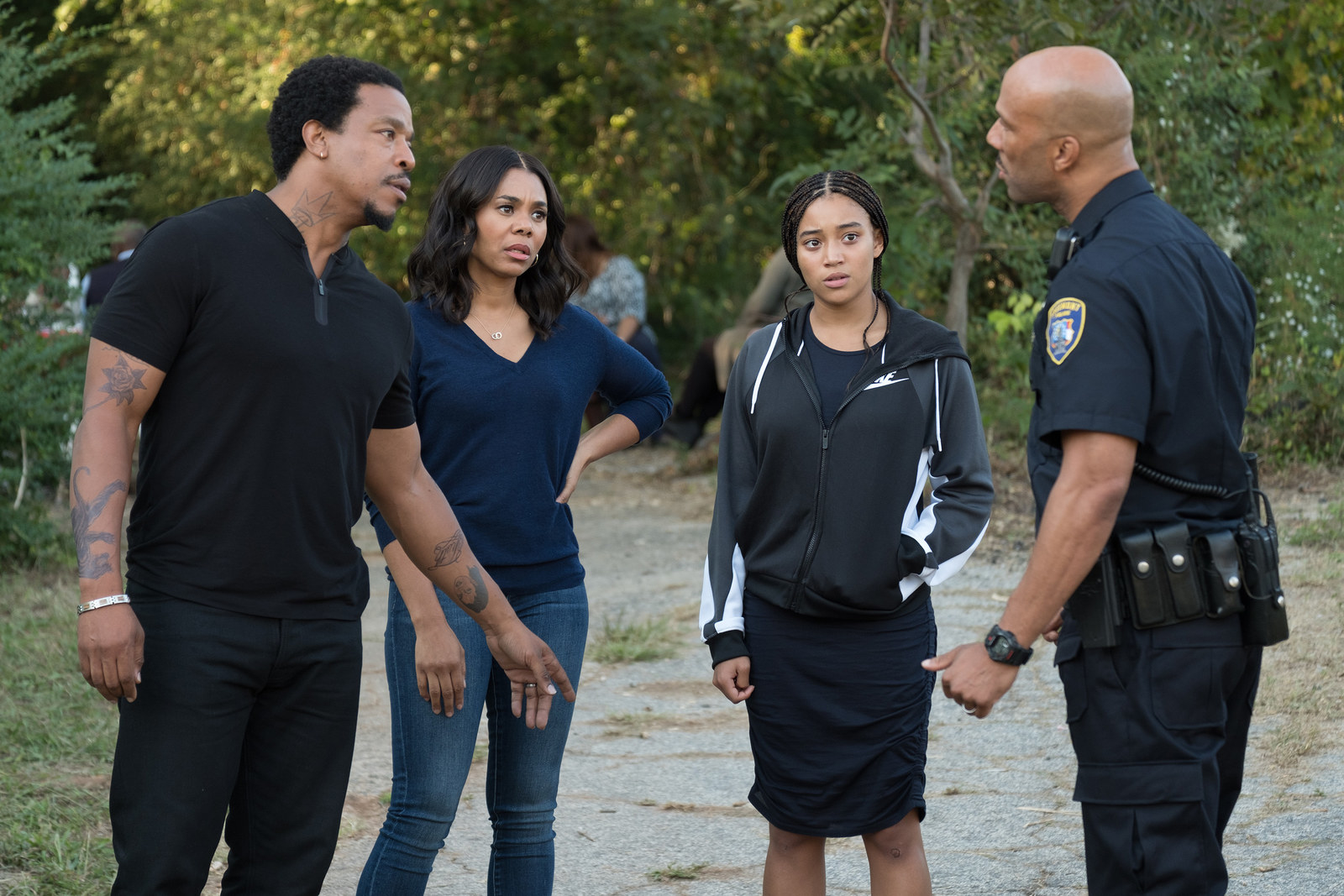
There was a time not long ago when The Hate U Give would have felt too young (it's based on a YA novel), too emotionally earnest (no one would accuse this film of subtlety), and too black (this doesn't need explanation) to rate as an obvious awards movie. Thanks largely to the Academy's efforts to rapidly diversify its membership in the wake of the #OscarsSoWhite controversy, one hopes we don't live in that time anymore.
The movie follows a teenage black girl named Starr (Amandla Stenberg, so great), who witnesses her childhood best friend get shot and killed by a white police officer. The event plunges Starr and her family right into the center of the #BlackLivesMatter faultlines, especially since Starr attends a predominantly white, upper-middle-class high school, and her boyfriend, Chris, is white.
The original actor cast to play Chris, Kian Lawley, was fired after filming had wrapped when a video surfaced of Lawley using the n-word, and director George Tillman Jr. (Faster, Notorious) reshot Chris's scenes, some logistically complex, with Riverdale's KJ Apa. But this isn't quite a Christopher Plummer situation — Apa is certainly appealing in the role, but the actor with the best shot at a nomination is Russell Hornsby, as Starr's father, Maverick. Hornsby, best known for his TV roles on NBC's Grimm and HBO's In Treatment, brims with such powerful deep feeling that he made me cry several times over, as did this movie. —ABV
Can You Ever Forgive Me? (Oct. 19)
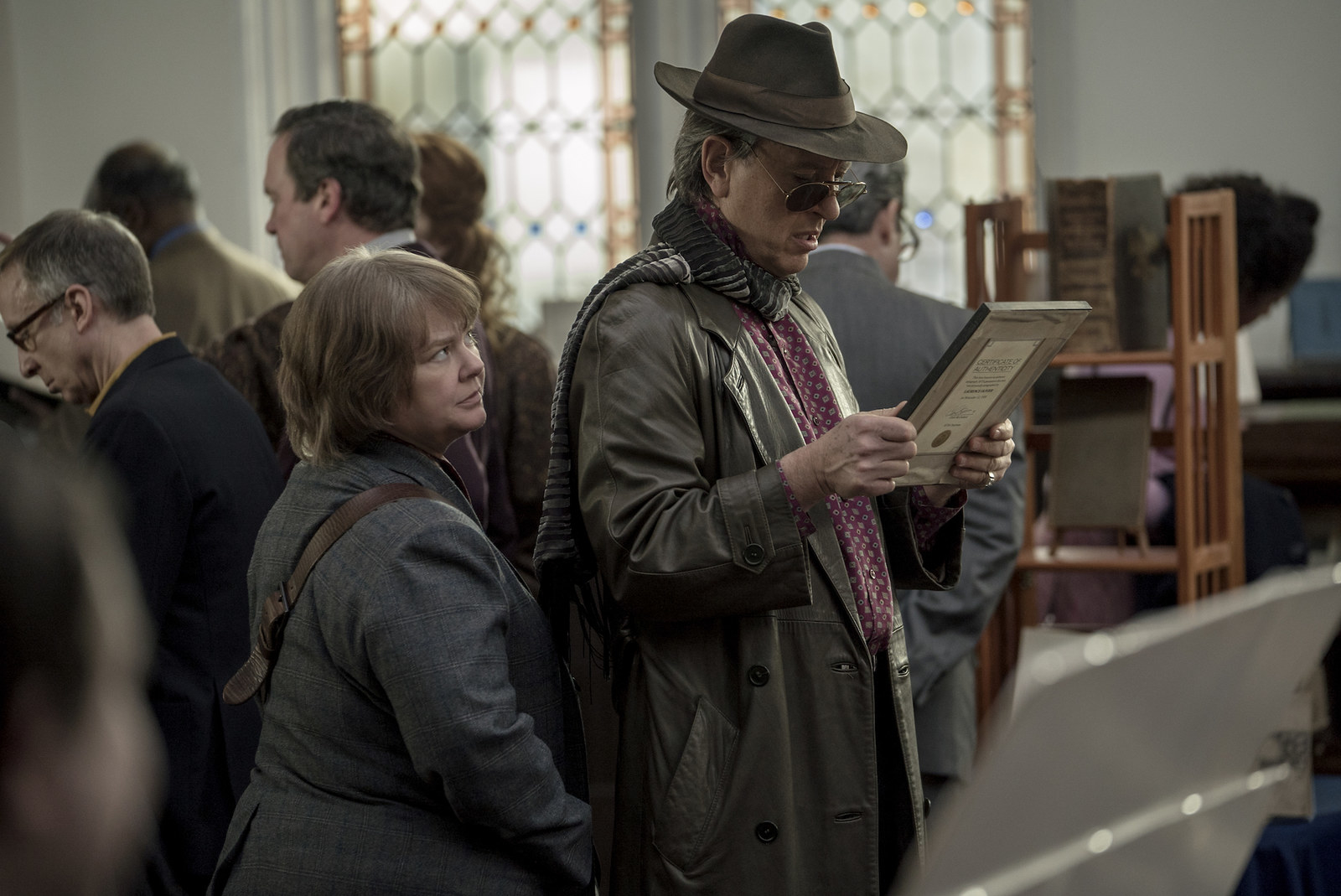
Melissa McCarthy has played prickly women before, but she’s never played anyone quite like Lee Israel, the biographer turned professional forger of letters on whose memoir Can You Ever Forgive Me? is based. What’s so impressive about McCarthy’s performance is that she never tries to make Lee particularly likable — the film as a whole isn’t interested in that. Lee is caustic, relentlessly unpleasant, and an unapologetic (title aside) con artist — but McCarthy also makes her endlessly compelling and ultimately something close to relatable. The emotional core of the movie sneaks up on you, and that makes it all the more effective. You suddenly find yourself crying, and you weren’t remotely prepared! (It’s possible I’m projecting a little here.) There’s a subtlety to Can You Ever Forgive Me? that might hurt its chances overall, though the script (by Nicole Holofcener and Jeff Whitty) and Marielle Heller’s direction are worthy of awards recognition. A safer bet would be a Best Supporting Actor nod for the reliably great Richard E. Grant, who is just wonderful here as Lee’s only real friend (and accomplice), Jack Hock. —LP
What They Had (Oct. 19)

This family drama debuted at the 2018 Sundance Film Festival rather quietly, probably because it was (does some quick math) the eleventy-thousandth Sundance movie about a white, upper-middle-class family that comes together in a time of crisis. To wit: Family matriarch Ruth (Blythe Danner), who has middle-stage Alzheimer's, wanders into the street in just her nightgown one night, forcing a confrontation between her stubborn and curmudgeonly husband (Robert Forster) and their equally stubborn son (Michael Shannon) about whether to commit Ruth to a full-time facility, with their daughter (Hilary Swank) caught in the middle. Yes, it all sounds quite familiar, but writer-director Elizabeth Chomko, making her feature debut, brings it all to vibrant life, giving each relationship within the family its own thorny, often quite funny specificity. All the actors run with the material, but Forster and Danner especially have the kind of standout, emotionally powerful scenes that could earn Forster his second Oscar nomination, and Danner, shockingly, her first. —ABV
Boy Erased (Nov. 2)
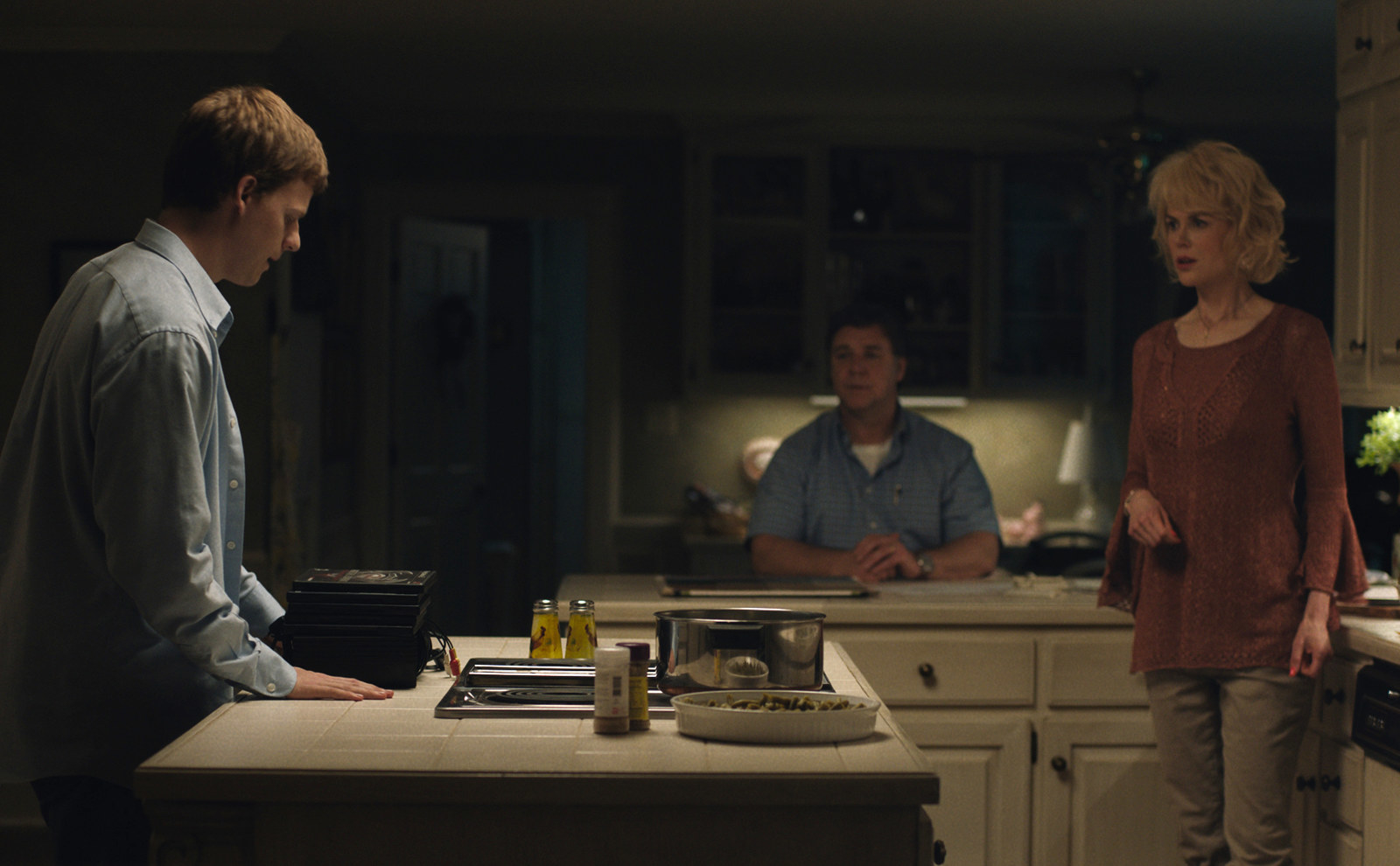
On paper, this is another movie that feels primed for awards season. It stars previous Oscar nominee Lucas Hedges (Manchester by the Sea) as Jared, an Arkansas college student struggling to reconcile his attraction to men with the devout Christianity instilled in him by his parents Nancy (Oscar winner Nicole Kidman) and Marshall (Oscar winner Russell Crowe), a Baptist minister. When Jared is outed at college, his parents enroll him in a reparative therapy program called Refuge. As he meets other queer youths there — including those played by pop star Troye Sivan and filmmaker Xavier Dolan, both openly gay — Jared begins to get frustrated with the methods of the program's director, Victor, played by director Joel Edgerton, who also adapted the screenplay from the memoir by Garrard Conley.
Edgerton handles Jared's experience with empathy for all sides, honestly considering Nancy and Marshall's deeply felt religious convictions while never losing sight of the fact that ex-gay therapy is total bullshit. But I'm not sure Edgerton found in Conley's story the best cinematic vehicle for exploring these issues. Jared is too self-possessed to ever totally buy into what Refuge is peddling, so the film's final act doesn't quite carry the punch I was hoping for. Still, the acting here is superb, particularly from Kidman and Crowe, who capture both sides of what it's like to believe to your marrow you're saving your son's soul, only to realize you nearly broke it. —ABV
The Front Runner (Nov. 6)
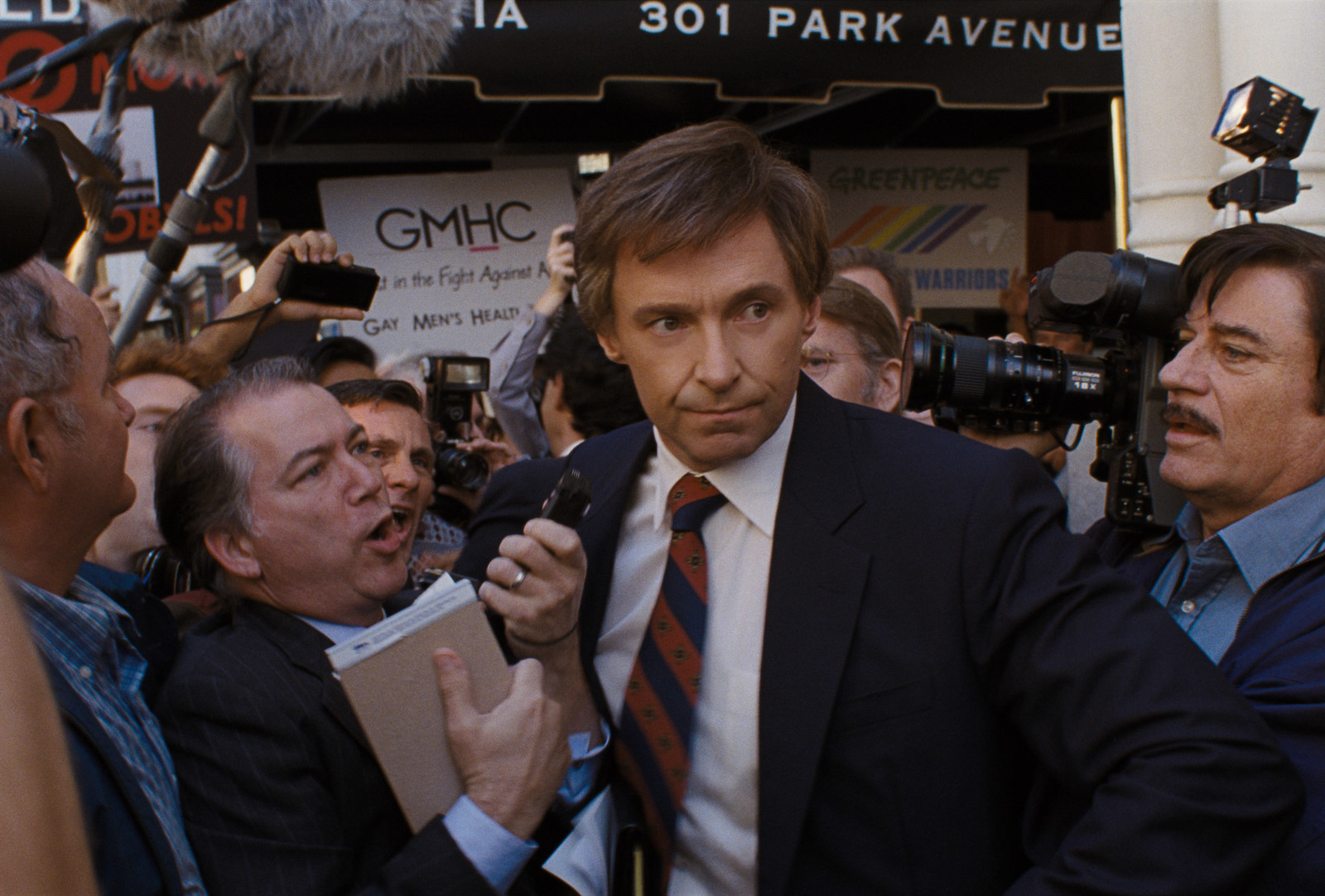
Going into the Toronto International Film Festival, Jason Reitman's The Front Runner was one of the movies I was most excited to see, but it turned out to be my biggest disappointment. The fall of Democrat Gary Hart during the 1988 presidential campaign because he not only cheated on his wife, but accidentally dared reporters to follow him if they thought he was lying about it, is just the sort of recent history that bears a close examination years later. But one of its problems is that given our current hellscape, Hart's downfall seems utterly quaint, and irrelevant. Also, if part of the movie's muddled point is that politicians’ personal lives shouldn't matter if that means losing someone great like Hart, pretty much everything that's happened since counters that point — personal lives are revealing of character! I'm also not positive that is what The Front Runner is trying to say, so confused is its point of view. The screenplay is credited to Reitman, Jay Carson, and Matt Bai (it's based on Bai's 2014 book, All the Truth Is Out: The Week Politics Went Tabloid).
This is all to say that Hugh Jackman is good enough as Hart to be in the Best Actor conversation, assuming that voters can ignore how distracting his wig is. If they can, I'm envious of them. —KA
At Eternity's Gate (Nov. 16)

Director Julian Schnabel has built his filmmaking career telling the stories of brilliant artists freighted with hardship: 1996's Basquiat, about American painter Jean-Michel Basquiat; 2000's Before Night Falls, about Cuban poet Reinaldo Arenas; and 2007's The Diving Bell and the Butterfly, about French writer Jean-Dominique Bauby. Schnabel's latest film approaches one of the most tortured artists ever, 19th-century Dutch painter Vincent Van Gogh (Willem Dafoe), who infamously sliced off his own ear after a reputed confrontation with fellow post-impressionist Paul Gauguin (Oscar Isaac). At Eternity's Gate, which premiered to largely strong reviews at the Venice Film Festival, traces the final years of Van Gogh's life before he died at 37.
Dafoe, meanwhile, is 63, which appears to be a deliberate choice on Schnabel's part to drive home how the painter’s demons ravaged him. More to the point, Dafoe seems born to play Van Gogh, and like so many others in this preview, his performance is earning him a level of acclaim he hasn't received in decades — and that’s after Dafoe already won wide acclaim for his performance last year in The Florida Project, for which he was nominated for an Oscar. —ABV
Widows (Nov. 16)
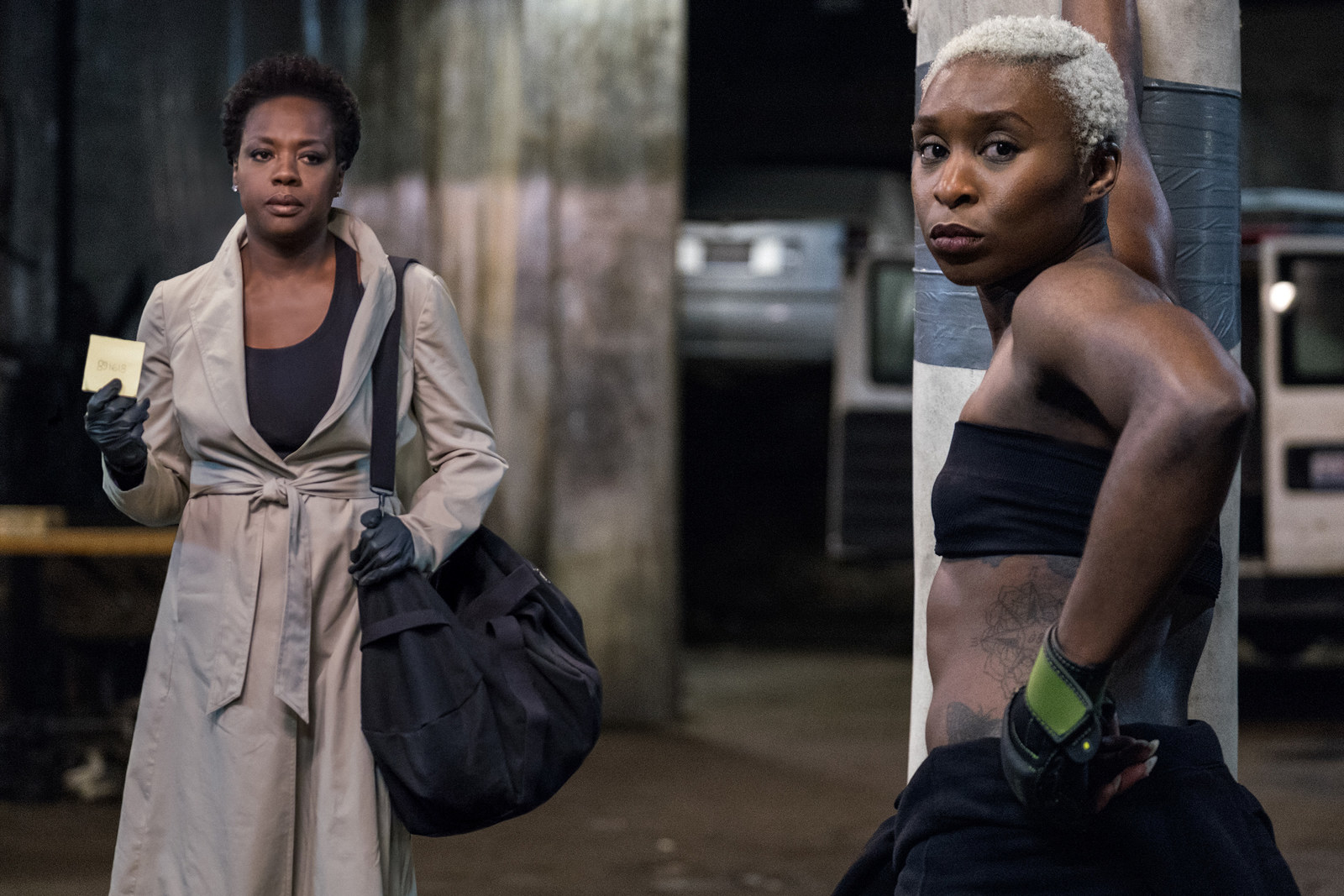
Where to even start with this movie! Let's go with director Steve McQueen (12 Years a Slave), who cowrote Widows' script with Gone Girl's Gillian Flynn (it’s based on an ’80s British TV series). Together, they've concocted a rip-roaring heist movie about three women forced to earn back the money lost by their husbands in a robbery that, as the title suggests, went very, very wrong. If it were just an edgy exercise in gender-bent genre storytelling, Widows would be great good fun. But McQueen and Flynn have so much more on their minds, weaving in a trenchant portrait of the noxious corruption in Chicago politics, and a mosaic of how women must scrape through their lives to escape all the ways men fuck them over.
And the cast! The cast! In her entire career, Viola Davis has never had a role like this one, which asks her to grieve (a few times over, in fact) and connive and kick ass, all while McQueen, cinematographer Sean Bobbitt, and costume designer Jenny Eagan treat her like the glamorous movie star she's always been. Michelle Rodriguez floored me as the most domestic and sensible of the titular widows, and Elizabeth Debicki is at once fragile and formidable as a woman who's only ever defined her own worth by the men in her life. Daniel Kaluuya is Javier Bardem in No Country for Old Men–level terrifying as the enforcer chasing down the money lost in that botched heist, and Colin Farrell, as the corrupt scion of a Chicago political family itching to get out from under the shadow of his racist father (Robert Duvall), has maybe never been better.
Basically, as my colleague — and friend! — Kate Aurthur tweeted, “It's too bad that every actor in Widows needs to be nominated for Oscars, but that's just the way it needs to be.” —ABV
Green Book (Nov. 21)
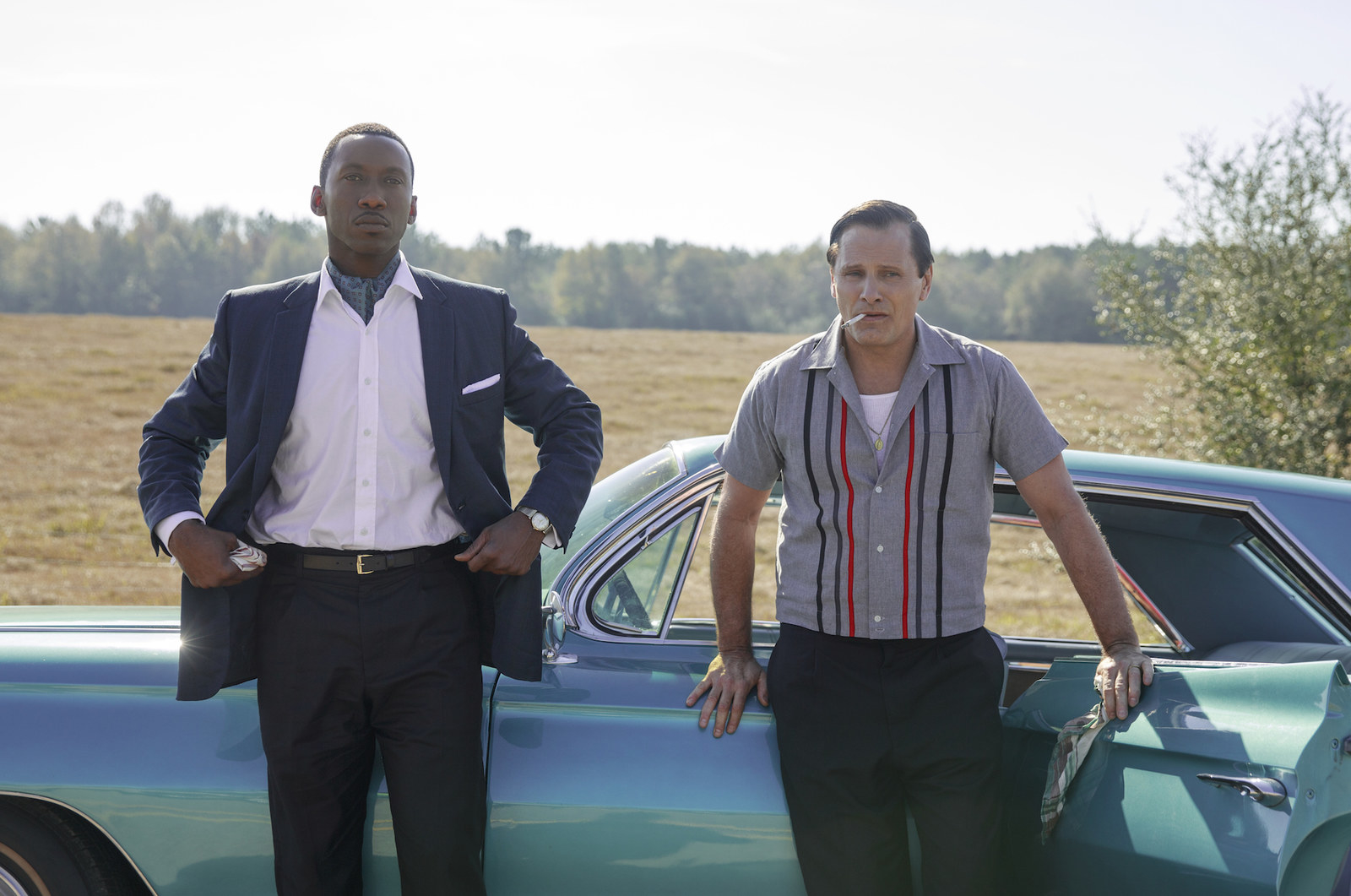
In 9 out of the last 10 years, the film that won the People's Choice Award at the Toronto International Film Festival went on to at least a nomination for Best Picture. This year's People's Choice winner, Green Book, was something of a last-minute entry in the awards season sweepstakes, premiering in the second half of the festival with not nearly the same advance buzz of First Man or A Star Is Born.
No matter. Green Book is based on the real-life road trip taken in 1962 by classical pianist Don Shirley (Mahershala Ali) and Tony Lip (Viggo Mortensen), the New York nightclub bouncer Shirley hired to drive him while on tour in the Deep South. The title refers to The Negro Motorist Green Book, a segregation-era guidebook for black travelers on friendly (and unfriendly) hotels, gas stations, and routes in the US — so, yes, this is a kind of reverse Driving Miss Daisy during which Important Lessons Will Be Learned About Racism. But Ali's refined and ostentatious Shirley is miles apart from his Oscar-winning role as a soft-spoken drug dealer in Moonlight, and Mortensen, who gained 30 pounds to play Lip, is winning rare praise for his comedy chops in this film.
The biggest surprise, though, is the director, Peter Farrelly, best known for making the classic gross-out comedies There's Something About Mary and Dumb and Dumber with his brother, Bobby. Peter is making his solo feature debut with Green Book, and if his movie continues to win over audiences like it did in Toronto, we could find ourselves in a universe in which the same man who shot Ben Stiller's junk caught in a zipper is also an Oscar nominee. —ABV
The Favourite (Nov. 23)
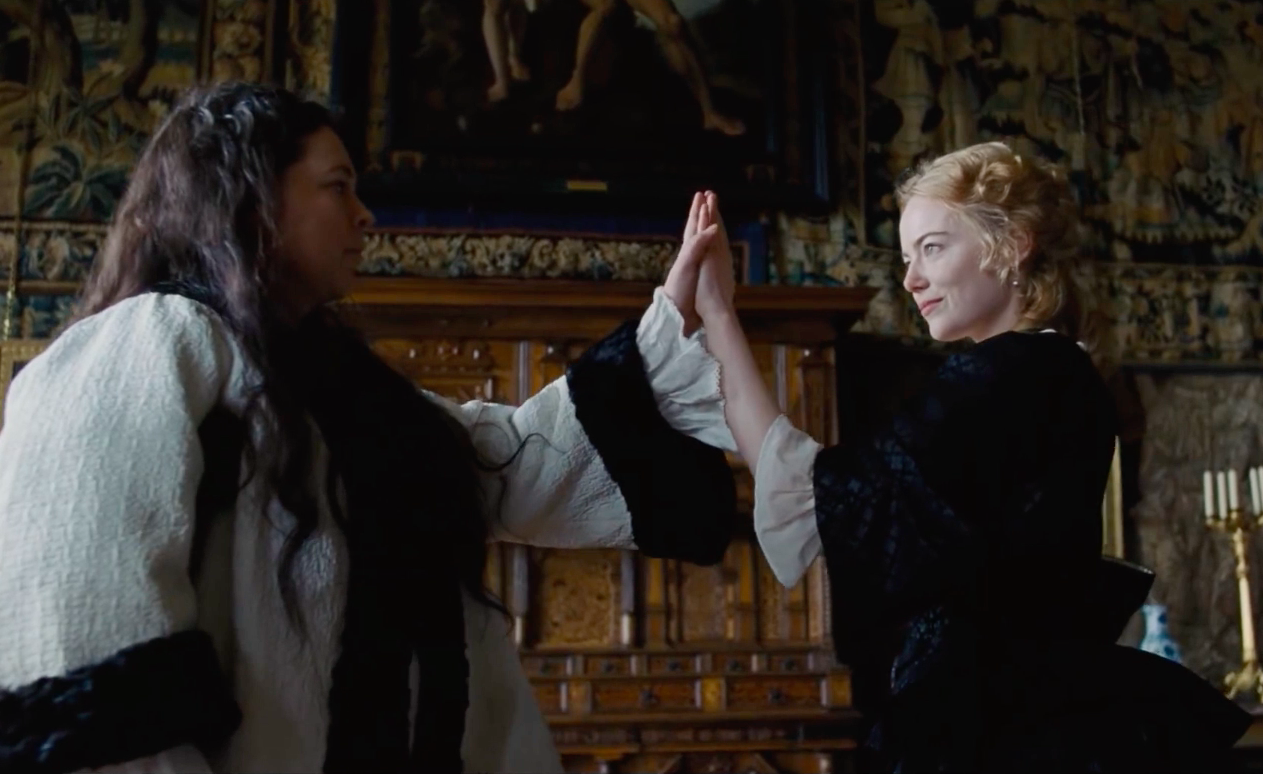
In the early 18th century, Anne, the queen of England, had a massive falling out with her close friend and confidante, Lady Sarah Churchill, the Duchess of Marlborough, in part over Sarah's cousin and Anne's servant, Abigail. The intimate truth of Anne, Sarah, and Abigail's relationship with each other remains unknown, and into that void steps The Favourite, an enchantingly venom-tipped piece of speculative historical fiction starring Olivia Colman as the queen, and Oscar winners Rachel Weisz and Emma Stone as Lady Sarah and Abigail respectively. The tangled web these women weave around each other is really something to behold — and would be criminal to spoil. (If you know your early 18th-century British royal history, you can guess at least some of it.) Suffice it to say, the pitch-black comic promise of director Yorgos Lanthimos's recent films The Lobster and The Killing of a Sacred Deer is more than fulfilled here, aided by a delicious screenplay by Deborah Davis and Tony McNamara. Colman, Weisz, and Stone, meanwhile, all deserve Oscar nominations, but their roles are so evenly matched that each of them could easily land in the lead or supporting categories — a good problem to have! (Fox Searchlight hasn’t yet confirmed for which categories the actors will campaign.) —ABV
If Beale Street Could Talk (Nov. 30)
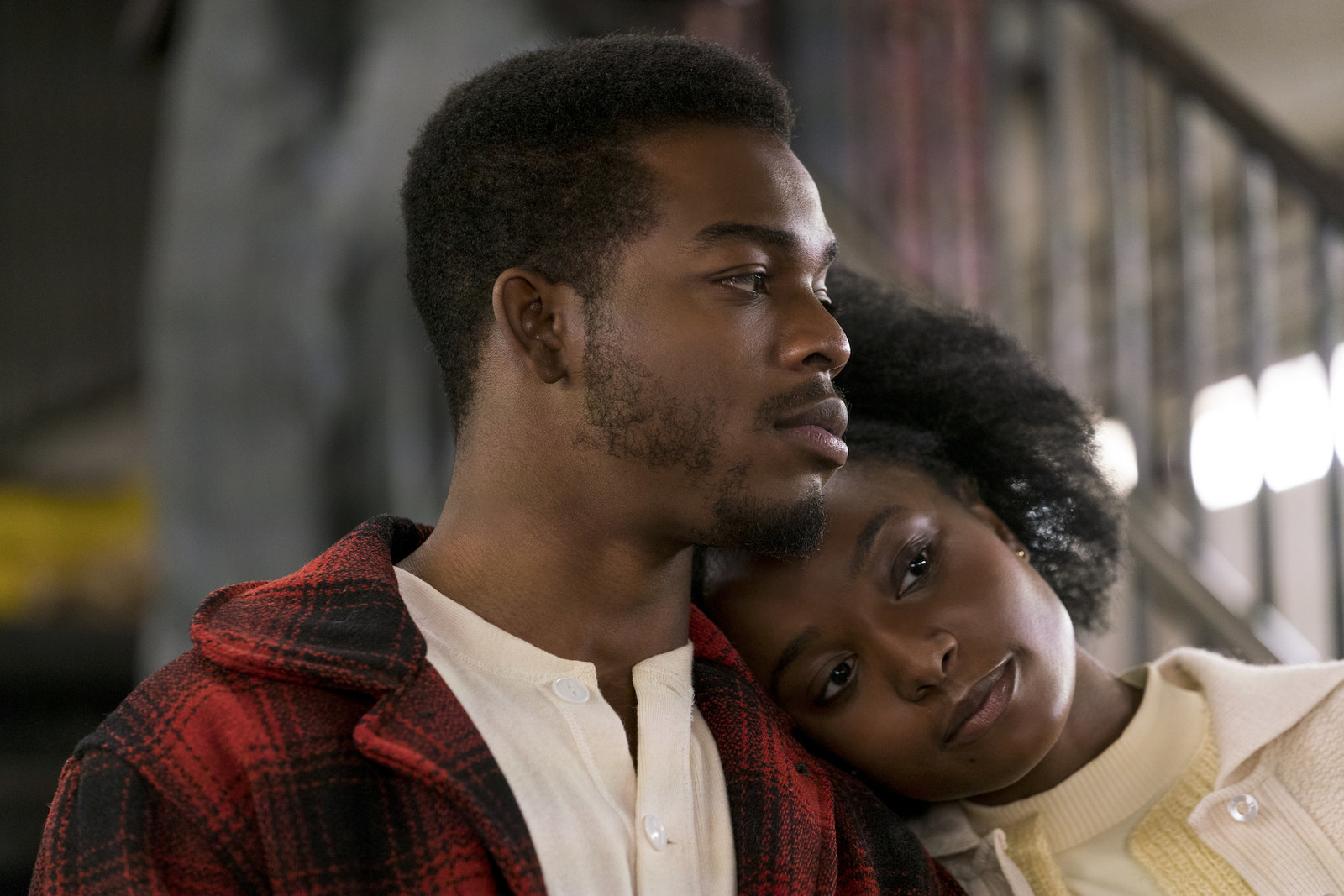
Based on James Baldwin’s novel of the same name, If Beale Street Could Talk is unlikely to earn the same top honors as director Barry Jenkins’ Best Picture–winning Moonlight, but it’s still gorgeous in its own right. Jenkins does an impressive job adapting Baldwin’s challenging story about a young woman, Tish (KiKi Layne), and her attempt to exonerate the man she loves, Fonny (Stephan James), who has been falsely accused of rape. Several critics have used the word “lyrical” in their assessment of the film, because that’s the most apt descriptor for something this moody and free-flowing. No one has an eye for color like Jenkins: Beale Street is lush and stunning to watch, and should earn cinematographer James Laxton, who also shot Moonlight, his second Oscar nod. Jenkins has an eye for talent as well: All of the actors get moments to shine, though none quite as brightly as Regina King. Her performance as Tish’s mother is breathtaking, and her biggest scene (if you’ve read the book, you know the one) has “Oscar clip” written all over it. But Layne and James, while they may not earn nominations, are essential to Beale Street’s success, especially remarkable considering this is Layne’s first feature film. —LP
Roma (December)
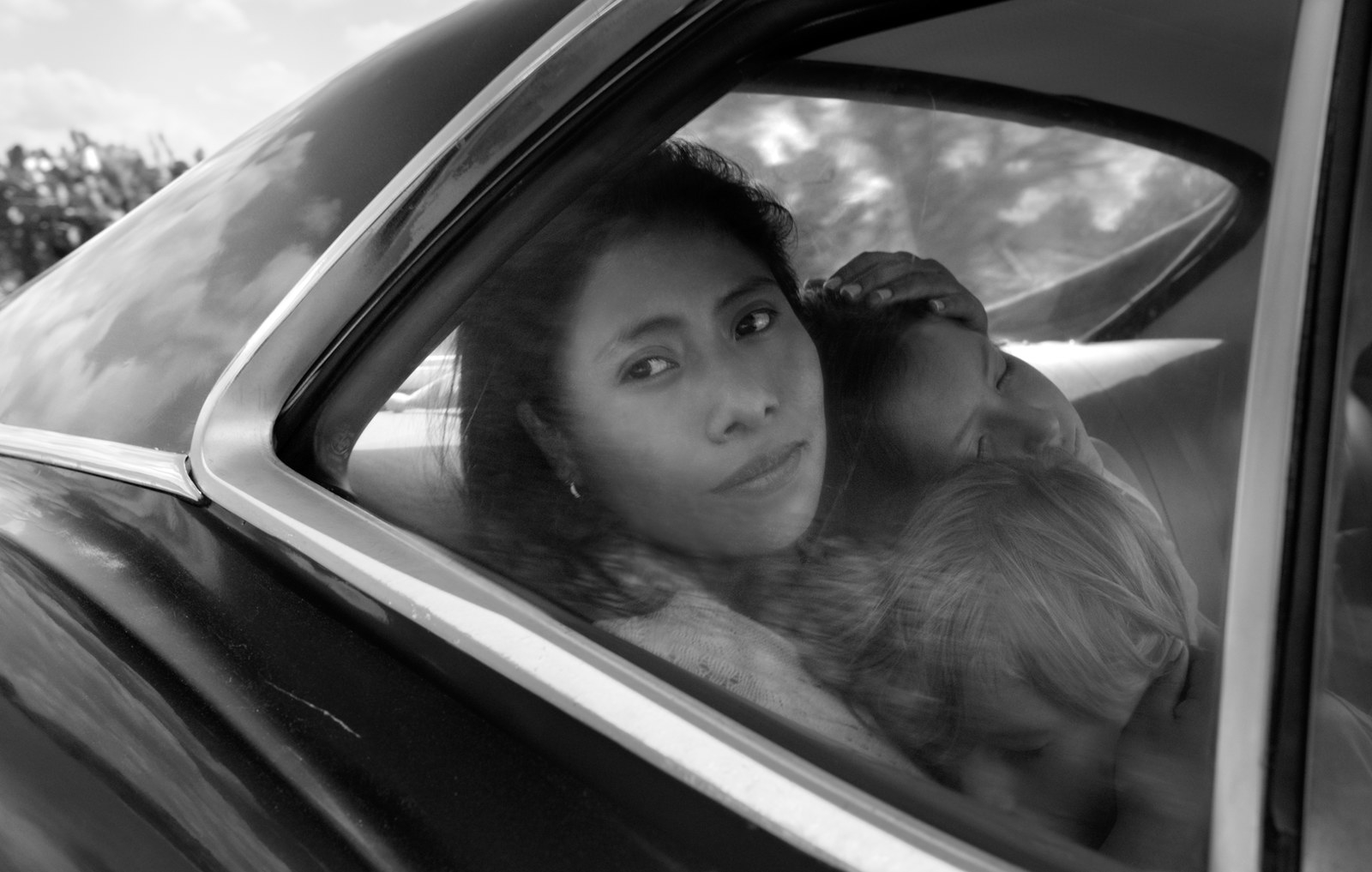
There is so much about Roma that feels so impossible that I still can't quite believe the film exists at all. After winning the Oscar for Best Director for his 2013 sci-fi spectacular Gravity, Alfonso Cuarón devoted himself to making a deeply personal family epic about his childhood in and around Mexico city in 1970 and '71. He worked with a cast of largely nonprofessional actors speaking only Spanish and Mixtec with English subtitles, and shot in black and white in a series of languidly paced shots that evoke the meticulous rhythms in the life of Cleo, the domestic worker at the film's center. The ambition of what Cuarón attempts here is monumental, not only in terms of the film's scope — there are breathtaking shots that seemingly employ thousands of extras — but in Cleo's staggering emotional journey, as captured in an incandescent performance by Yalitza Aparicio.
Along with directing, producing, and writing Roma, Cuarón served as his own cinematographer and coeditor, meaning he could be nominated five times for the same movie (which would be an Oscars record, surpassing Warren Beatty’s four nominations for 1978’s Heaven Can Wait and 1981’s Reds). Before that can happen, however, Roma has to overcome the Academy's dubious regard for Netflix's commitment to stream its movies the same day they open in theaters. This has become such an issue for Netflix, in fact, that the company is still debating making an exception to release Roma in theaters exclusively first before it streams on Netflix — but that window would still likely be a matter of weeks, not months.
Bottom line: If a movie as undeniably powerful and astonishingly well-crafted as Roma can't earn Netflix its first Best Picture nomination, then I'm not sure what movie could. —ABV
Ben Is Back (Dec. 7)

This movie, in which Lucas Hedges plays Ben — a college student with an opioid addiction who leaves his sober-living facility to come home for Christmas Eve — revolves around the lead performances of Hedges and Julia Roberts as his mother, Holly. There's a sense of dread over the proceedings, effectively established by writer-director Peter Hedges (Lucas's dad). But the tone is erratic, and ultimately Ben Is Back falls apart toward the end.
Yet the dynamic between Holly and Ben, created by both actors, is something we haven't seen before. As a condition of Ben being home, Holly vows not to let him leave her sight. After Ponce, the beloved family dog, is taken from their home, and Ben realizes one of his former drug pals did it, Ben and Holly go searching through the underbelly of their suburban Westchester town that she never knew existed. It's intense, disturbing, and even scary in a few moments. Holly thought she knew how low Ben had sunk; she did not. Roberts and Hedges are both excellent, and they know their characters well. The mother-son relationship is the fulcrum of Ben Is Back, and when they do part ways, the movie crumbles. But until then, it's quite a ride. —KA
Vox Lux (Dec. 7)

If you’ve ever wanted to see Natalie Portman wield a truly batshit Staten Island accent and deliver a performance that can best be described as “deranged,” do I have the movie for you! Vox Lux is a mess of a film, a mean-spirited, largely unpleasant, and deliberately uncomfortable look at the makings of a pop star. (And also, like, terrorism, or whatever?) But regardless of how you feel about the movie as a whole — I was decidedly not a fan! — Portman gives her all in a way that should at least make her part of the awards conversation in an admittedly competitive year. She sings, she dances, she calls her sister “retahded” several times, and because she’s such a consistently great actor, you can’t take your eyes off her the whole time. And credit where it’s due, her big concert performance at the end is legitimately brilliant. If A Star Is Born proves that Lady Gaga is a real actor, Vox Lux proves that Natalie Portman is an actual pop star. —LP
Destroyer (Dec. 25)
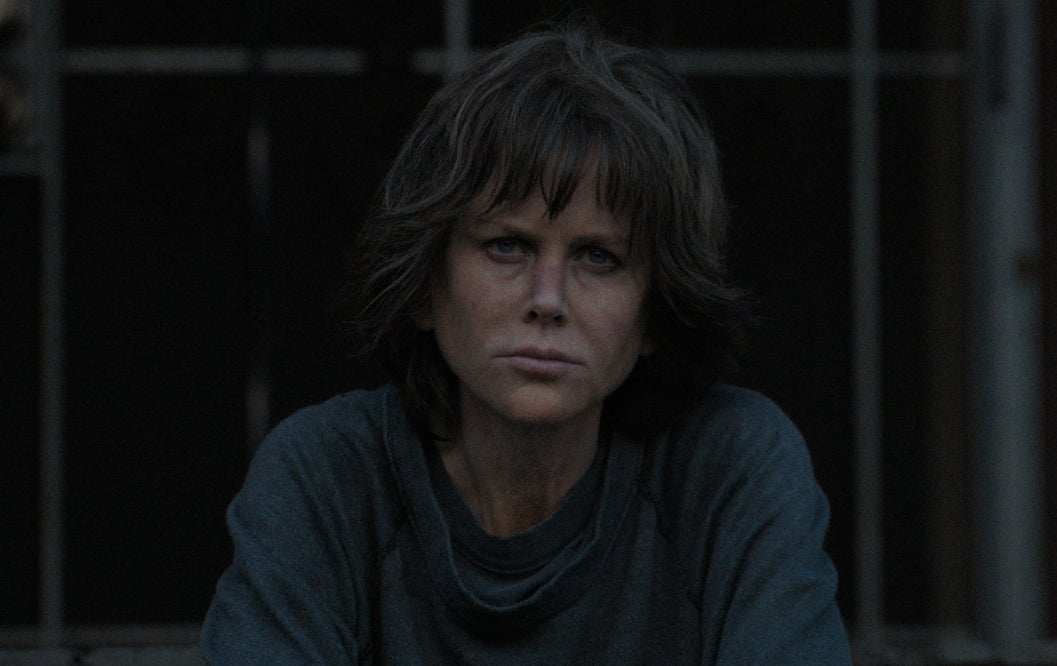
The contemptible male antihero has been a near-constant presence in American cinema, and a pretty great way to win an Oscar — just ask Daniel Day-Lewis (There Will Be Blood), Denzel Washington (Training Day), Anthony Hopkins (Silence of the Lambs), Jeremy Irons (Reversal of Fortune), Michael Douglas (Wall Street), and Robert De Niro (Raging Bull). You get the idea. While misbehaving women have certainly made a mark at the Academy Awards — Frances McDormand's Mildred Hayes from Three Billboards Outside Ebbing, Missouri is no saint — there's a certain class of truly broken person that has remained the virtually exclusive purview of male actors.
All of which is to say that audiences and Academy voters alike may not be quite prepared for what Nicole Kidman does in Destroyer. Kidman is almost unrecognizable as Erin Bell, an LAPD detective with a terribly dark past that has wrung her ragged at the bottom of a bottle — until a totem from that past resurfaces, causing Erin to spiral even further as she desperately tries to rectify her past mistakes. I'm being purposefully vague to avoid a minefield of spoilers, but just know that director Karyn Kusama and screenwriters Phil Hay and Matt Manfredi — whose taut thriller The Invitation was one of the best films of 2016 — have created a fearsome showcase that a female actor of Kidman's talents has never really enjoyed before. —ABV
MOVIES THAT HAVEN’T PUBLICLY SCREENED
Almost no one has seen these finished films, so their awards chances are based purely on the pedigree of the people who made them.
Mary Queen of Scots (Dec. 7)
The, shall we say, complicated relationship between Mary Stuart — aka Mary, Queen of Scots — and her cousin Elizabeth — aka Queen Elizabeth I — has been a rather well-trod cinematic subject. Samantha Morton played Mary Stuart in 2007's Elizabeth: The Golden Age (which earned Cate Blanchett her second Oscar nomination for playing Queen Elizabeth), and Vanessa Redgrave was nominated for an Oscar for playing the title role in 1971's Mary, Queen of Scots. The fiery Scottish monarch was even one of Katharine Hepburn's earliest roles, in 1936's Mary of Scotland.
To those ranks we can now add Saoirse Ronan as Mary, and Margot Robbie as Elizabeth, in this film from British theater director Josie Rourke. The trailer suggests that this Mary Queen of Scots will have the lavish costumes and sets one expects from a period film of this size — and, intriguingly, it will be honest about how Elizabeth's increasingly extreme physical appearance wreaked havoc on her skin and hair. Should Ronan be nominated for her performance as Mary, meanwhile, it will be her fourth nomination, at 24 years old. Just today's reminder that we've all accomplished nothing. —ABV
Mary Poppins Returns (Dec. 19)

The original Mary Poppins, which opened in 1965, was nominated for 13 — 13! — Academy Awards, including for Best Picture and Best Director, and it won 5, including for Julie Andrews for Best Actress.
So this sequel, with Emily Blunt stepping into Andrews' shoes as the practically perfect umbrella-flying nanny, sure does have a lot to live up to. The story picks up with Jane and Michael Banks — the adorable young moppets from the original who so desperately needed Mary Poppins to save their father from losing his soul to cheerless adulthood — as adults, played by Emily Mortimer and Ben Whishaw. Their lives have apparently fallen into such ruin that it prompts, well, the title is right there. A lot has changed in Hollywood, and in the Academy, in the 53 years since Mary Poppins premiered — it's been a minute since a giant movie musical made for the entire family opened during the holidays and went on to Oscar glory. But the trailers make Mary Poppins Returns look just as fantastical as the first, and the presence of Broadway magician Lin-Manuel Miranda certainly boosts its musical bona fides. Also, Meryl Streep is in it. So. There's that. —ABV
Welcome to Marwen (Dec. 21)

In April 2000, Mark Hogancamp was beaten so viciously by a group of men outside a bar that, after emerging from a coma, he had almost no memory of his life before the attack. To cope, he created an elaborate 1/6-scale model town in his backyard that recreated the people in his life as the citizens of a World War II–era Belgian town called Marwencol. His story was depicted in a beautiful 2010 documentary of the same name, and now director Robert Zemeckis has made it into a narrative feature, with Steve Carell playing Mark. The hook is that Zemeckis literalizes Mark's fantasies by bringing the dolls to life with CGI, with an enviable company of women actors — Leslie Mann, Janelle Monáe, Gwendoline Christie, Merritt Wever — playing the women in Mark's life who come to his rescue. It's not quite clear why Hogancamp's creation is called Marwen in the movie and not Marwencol (a portmanteau of Mark's name with two women he liked, Wendy and Colleen), and the film's trailers have hidden the reason Hogancamp was attacked (he'd told his attackers he was a cross-dresser). But if the movie can come close to the emotional grace and creative idiosyncrasy of Hogancamp's art, then Oscar may not be far behind. —ABV
Vice (Dec. 25)

A pretty great way to earn yourself an Oscar nomination is starring in a biopic of notable historical figures, and good golly, this biopic of former vice president Dick Cheney is filled with them: Christian Bale as Cheney, Amy Adams as his wife, Lynne, Sam Rockwell as George W. Bush, Steve Carell as Donald Rumsfeld, Tyler Perry as Colin Powell, and Lily Rabe and Alison Pill as Cheney's daughters Liz and Mary. Adam McKay (The Big Short, Anchorman) wrote and directed the film, so it's likely his portrait of both Cheney's time as vice president and his formative years working for President Gerald Ford (Bill Camp) will be funny — or, at least, try to be. But given the current catastrophic state of our federal government, Cheney's reign as the Emperor Palpatine of the 2000s now feels, like that Star Wars reference, like a million years ago. McKay faces something of an uphill battle to convince audiences (and Oscar voters) that Cheney's life remains relevant. —ABV
On the Basis of Sex (Dec. 25)
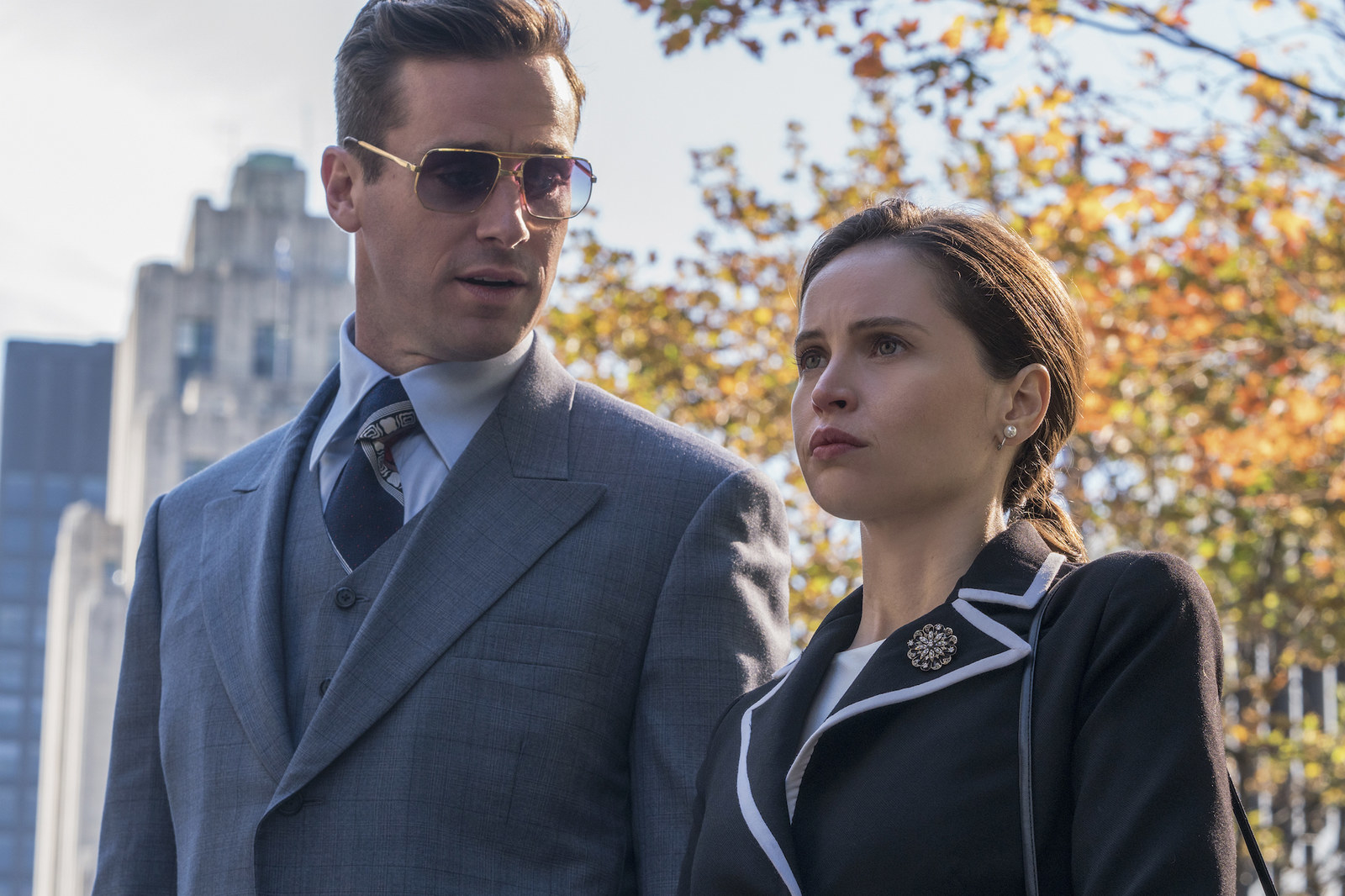
This biopic is of a particularly timely public figure: Supreme Court Justice Ruth Bader Ginsburg. Rather than charting her time as the progressive feminist icon of the highest court in the US, however, director Mimi Leder (Deep Impact) is focusing instead on Ginsburg's work as a lawyer in the 1970s on a landmark Supreme Court sex discrimination case. Previous Oscar nominee Felicity Jones (The Theory of Everything) plays Ginsburg, and Call Me by Your Name's Armie Hammer plays her devoted husband, Marty, but there are some big hurdles ahead for this movie's Oscar chances: The film's berth at the end of the year gives it very little time to earn real awards momentum, and this year's documentary about Ginsburg, RBG, covered much of the same ground, was a box office hit, and will likely be a nominee for Best Documentary Feature. —ABV
UPDATE
This story has been updated to reflect the Dec. 25 release date for Vice.


